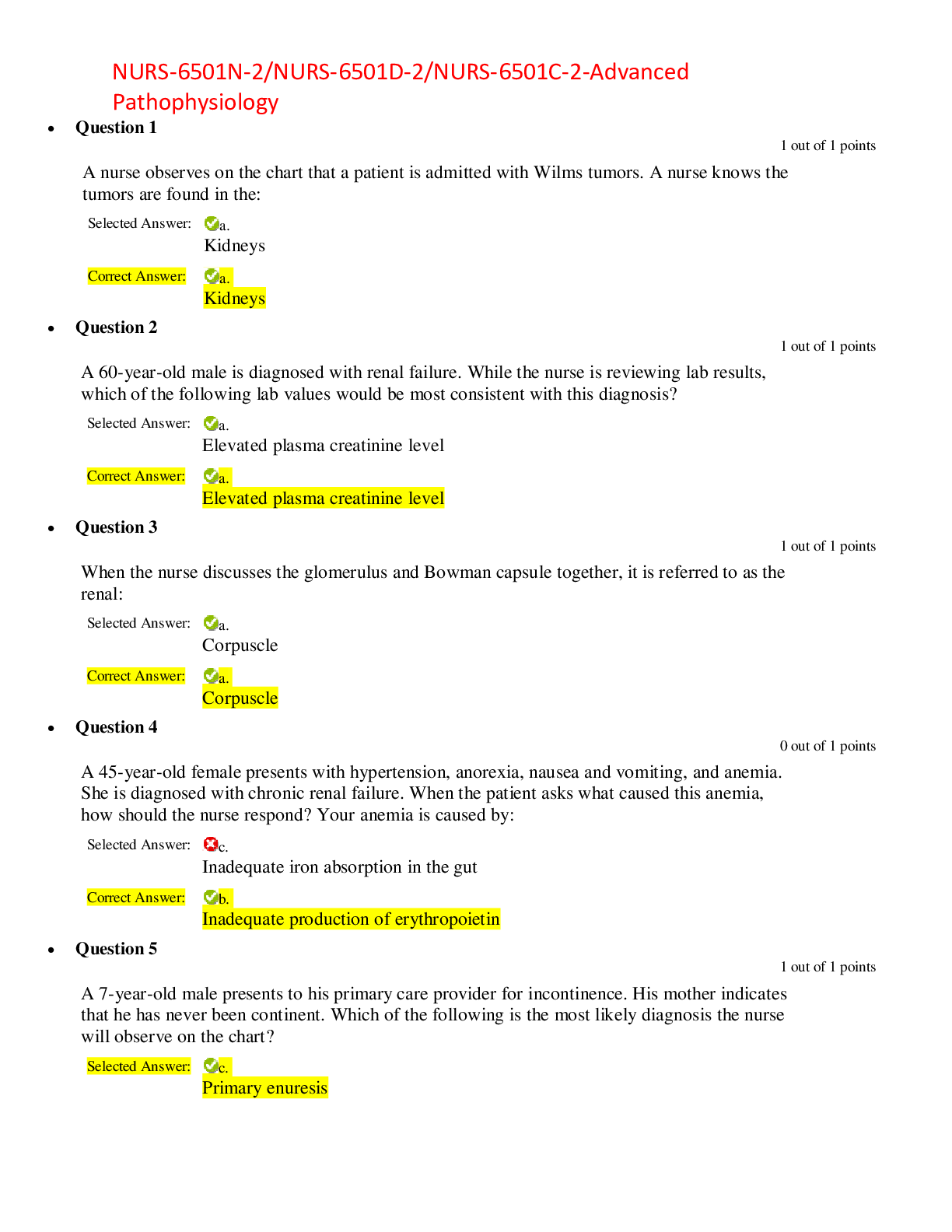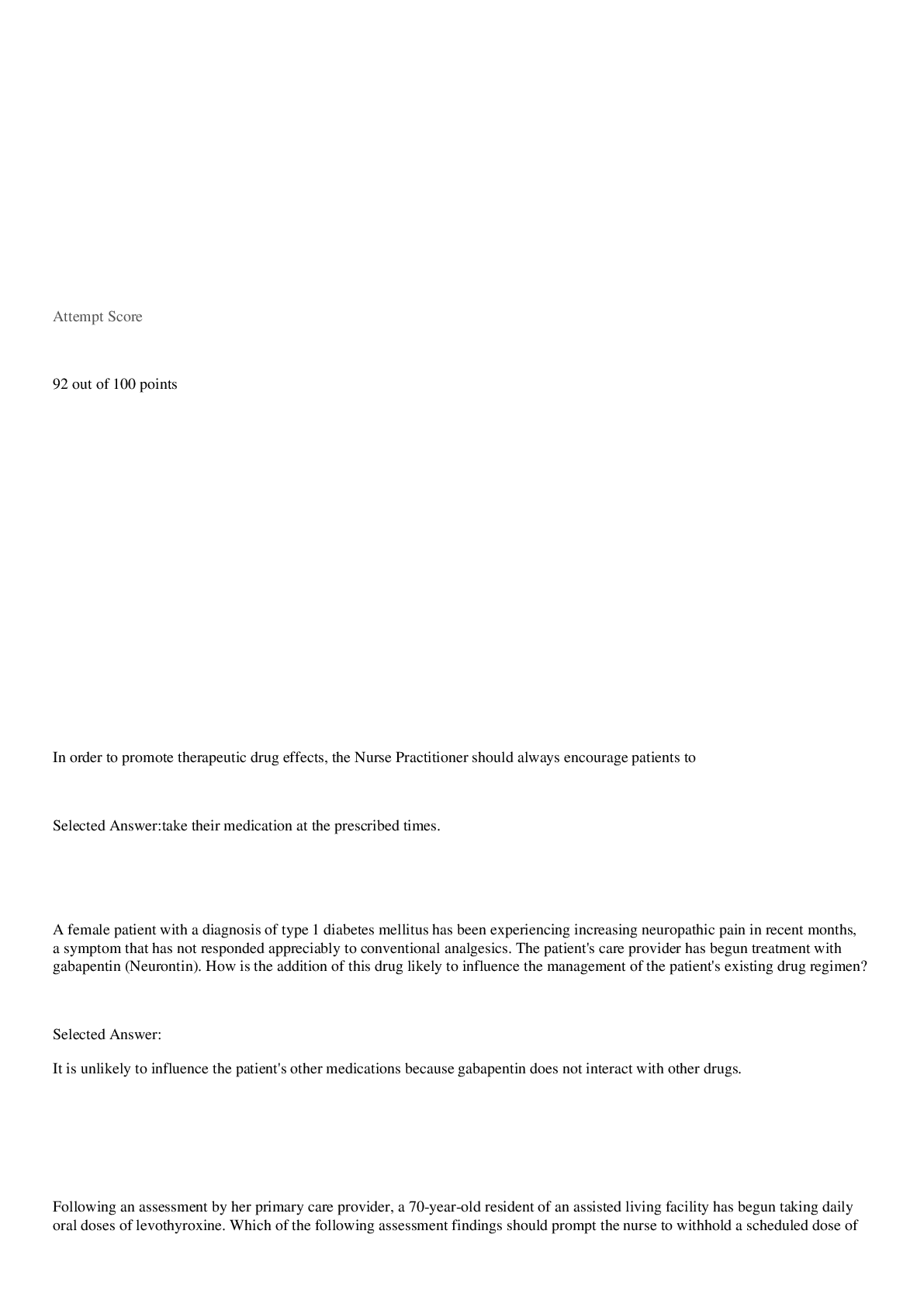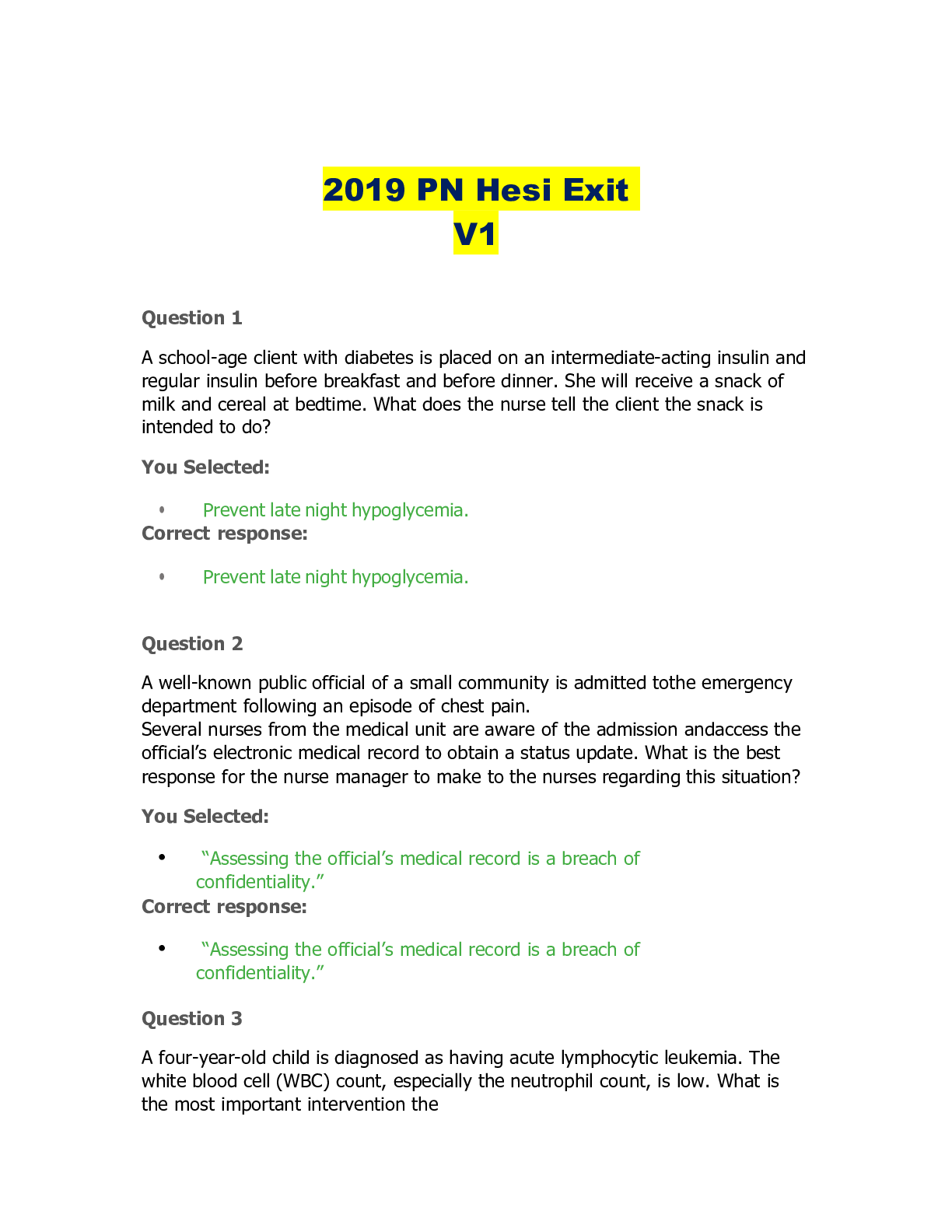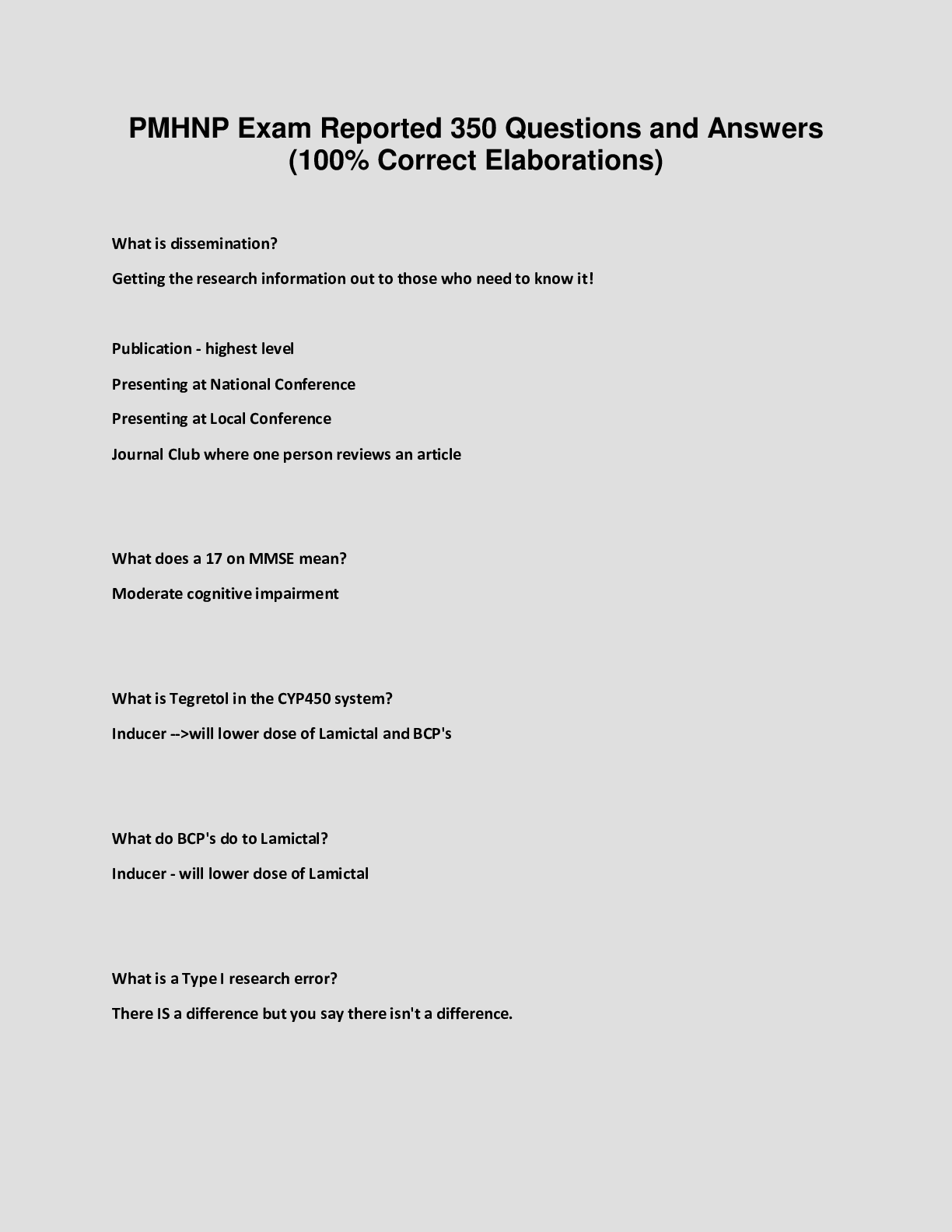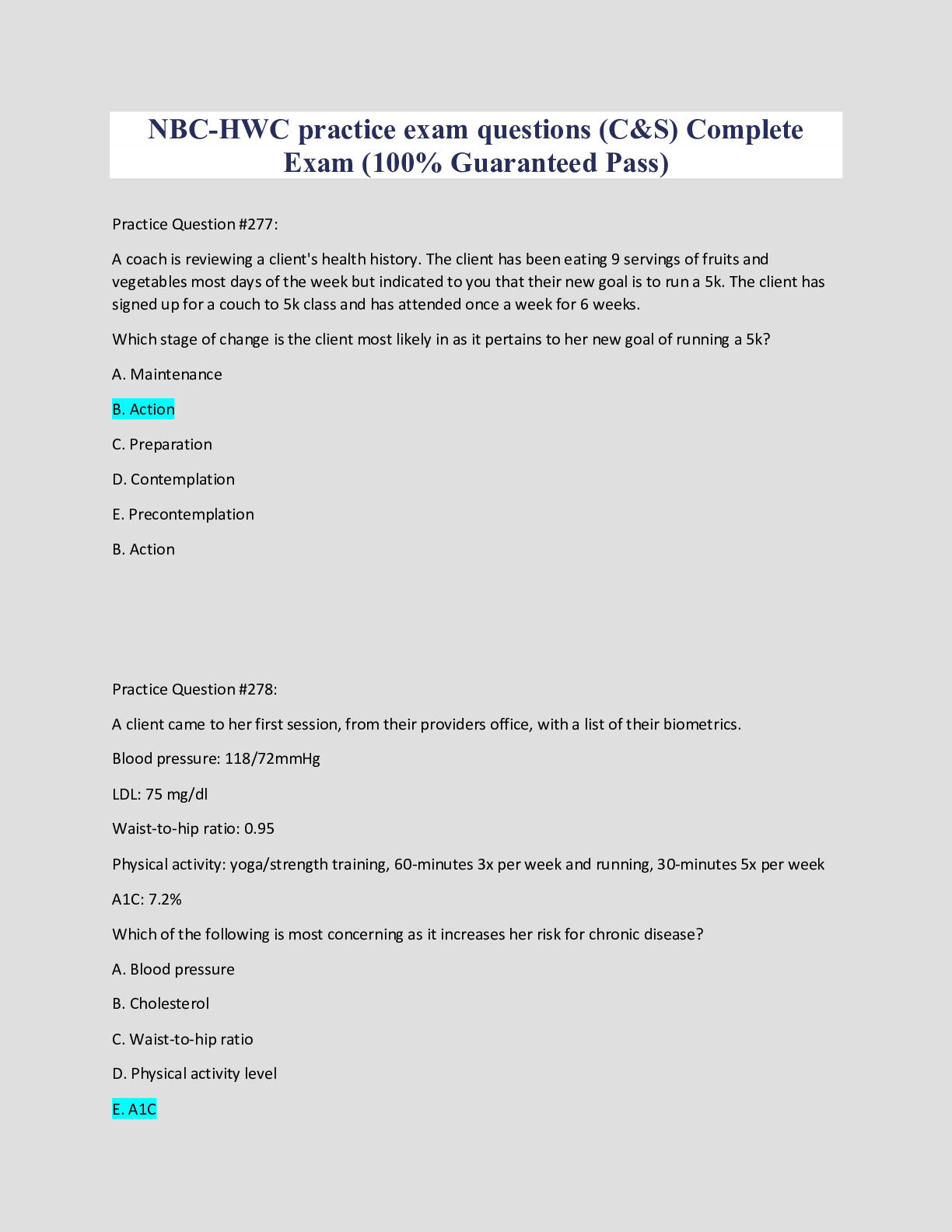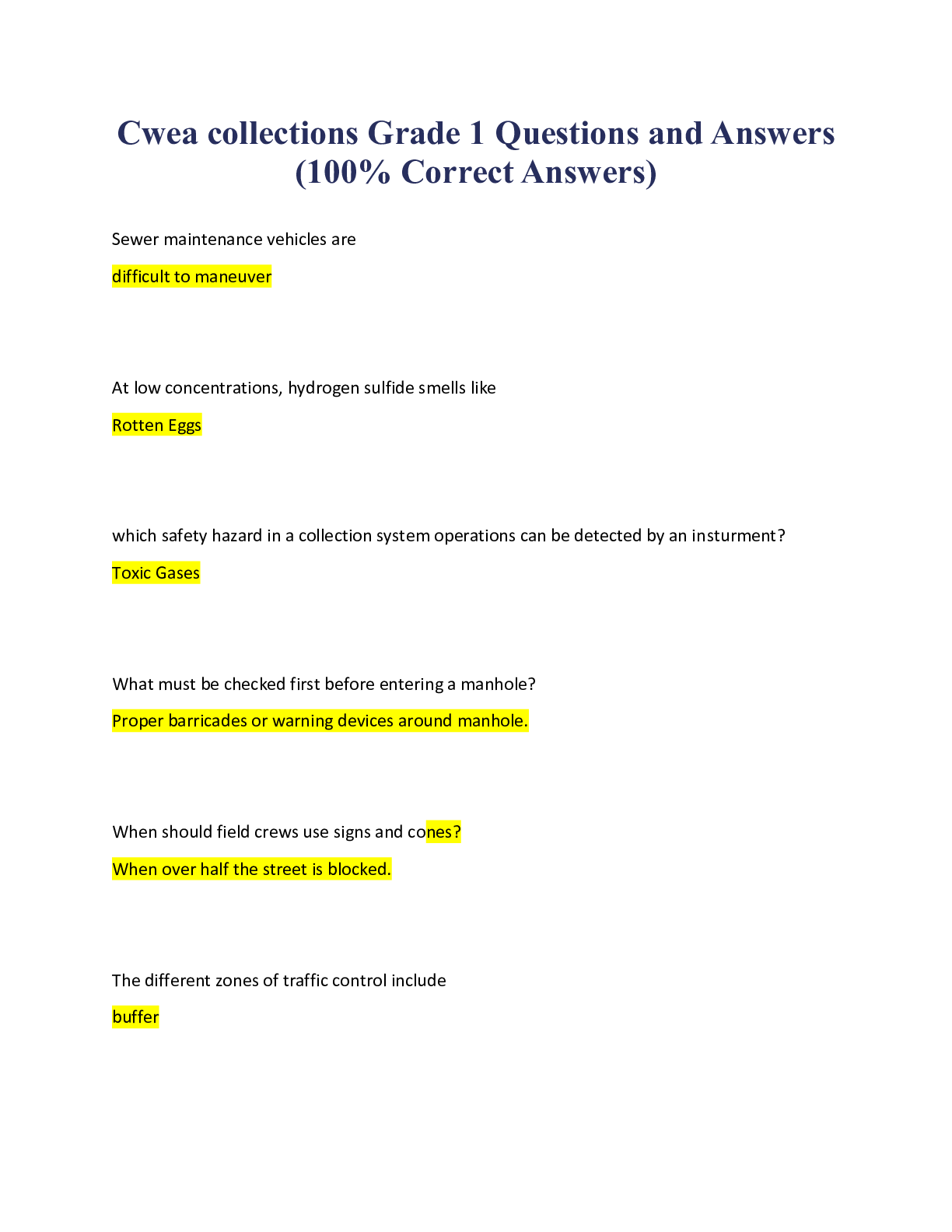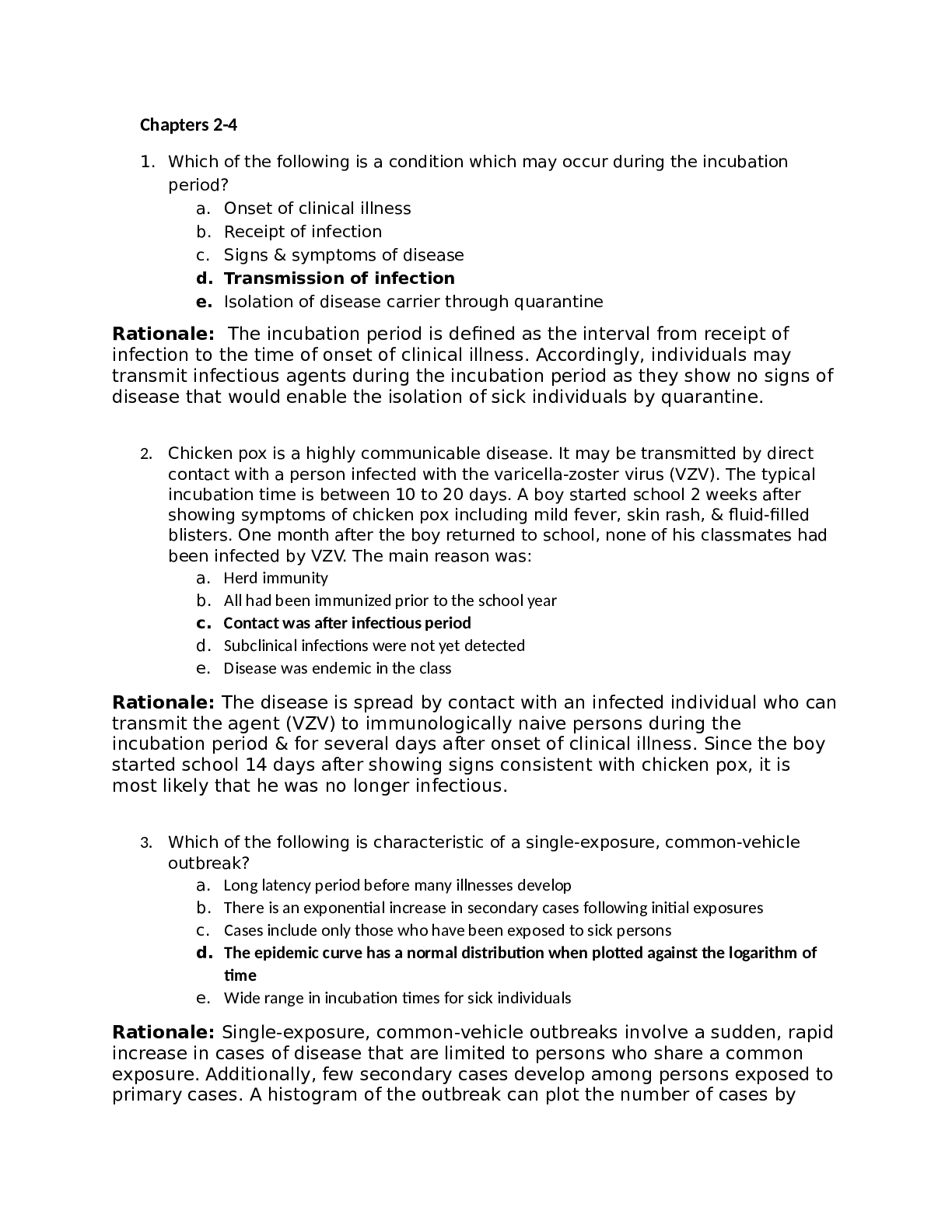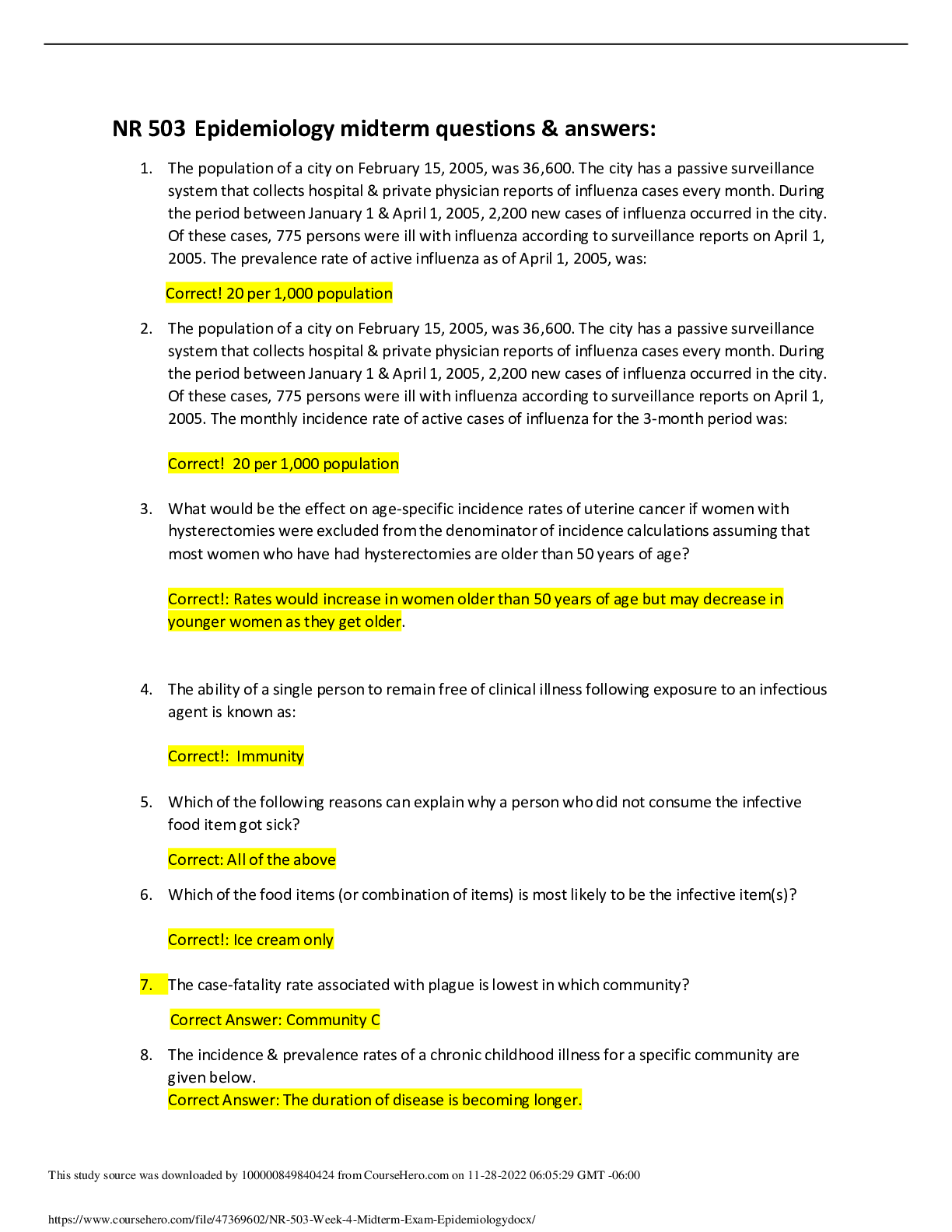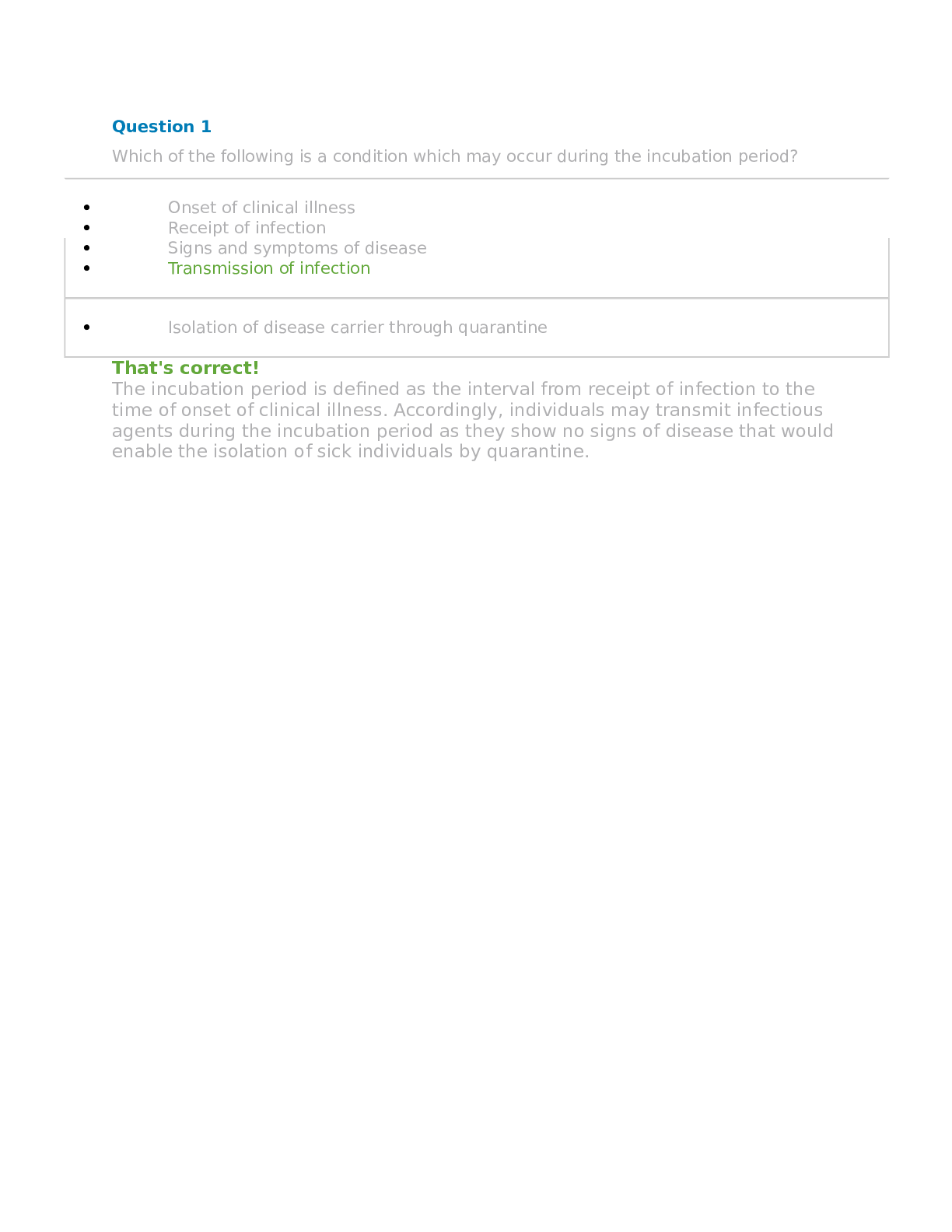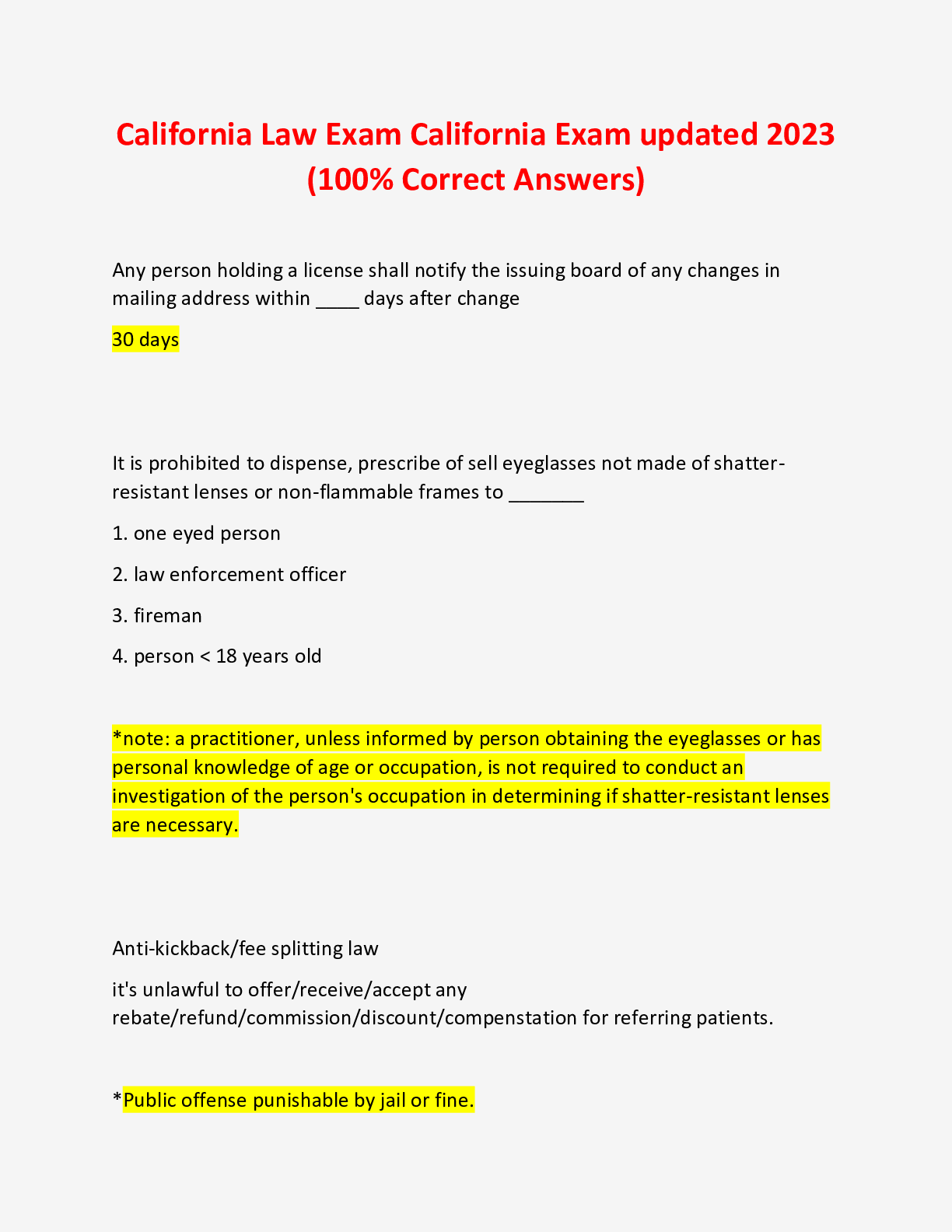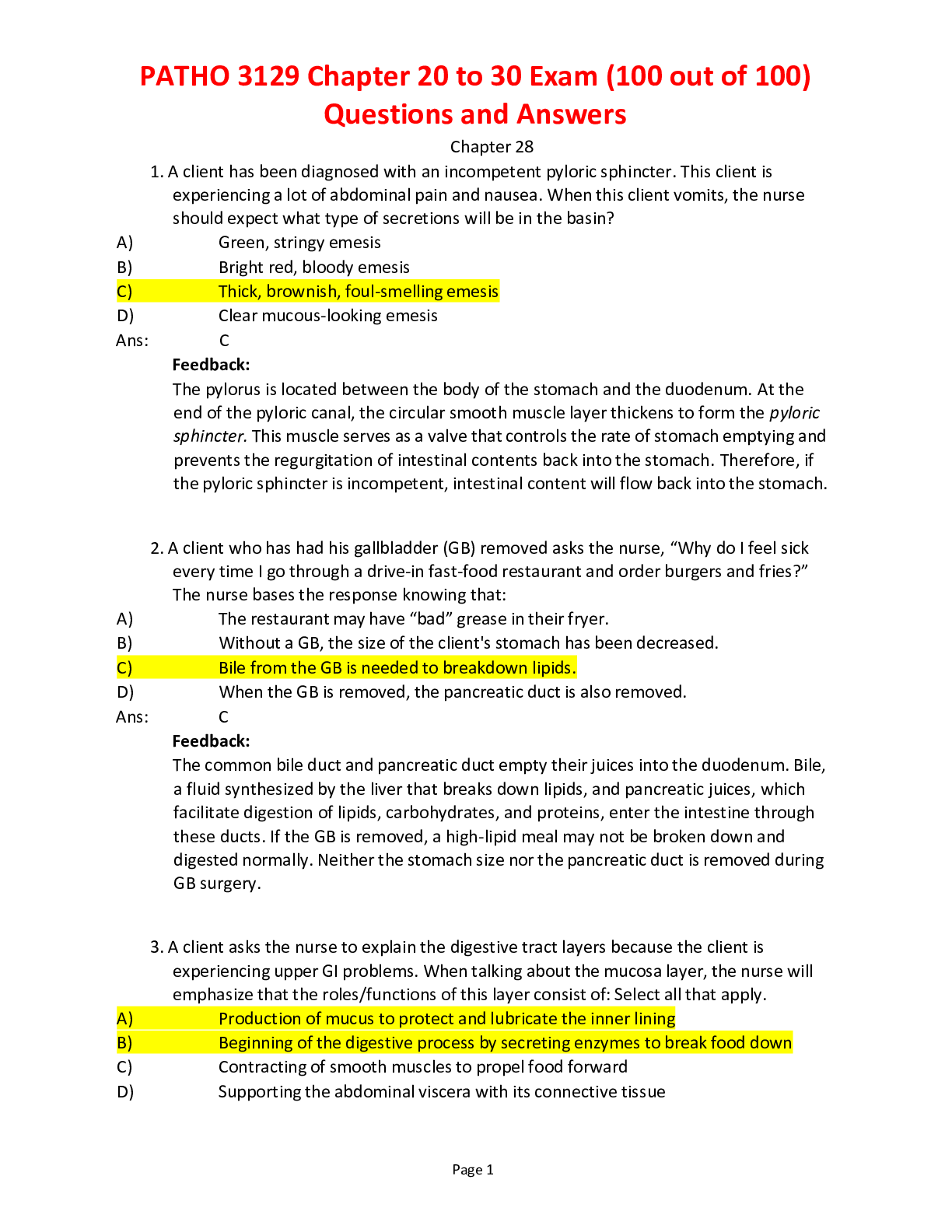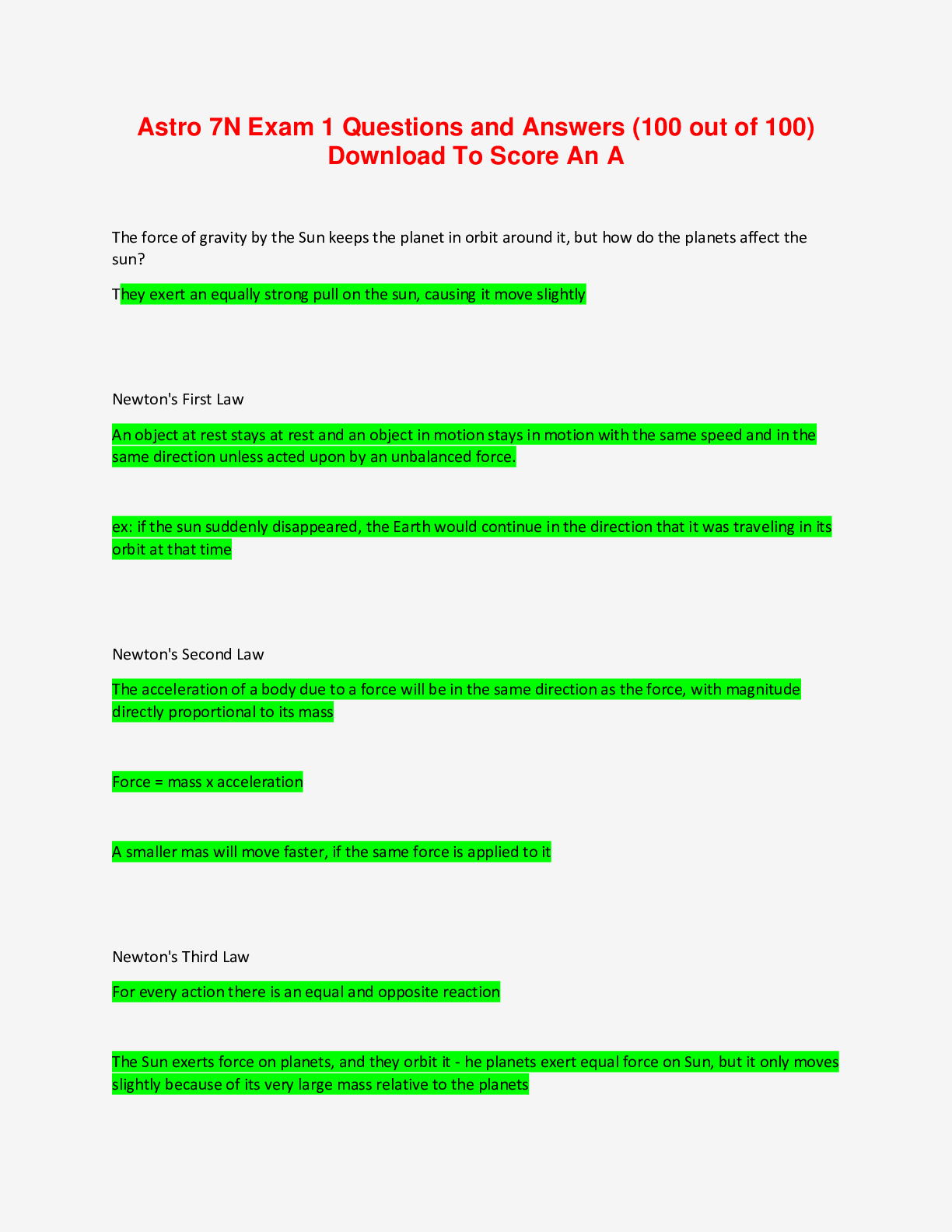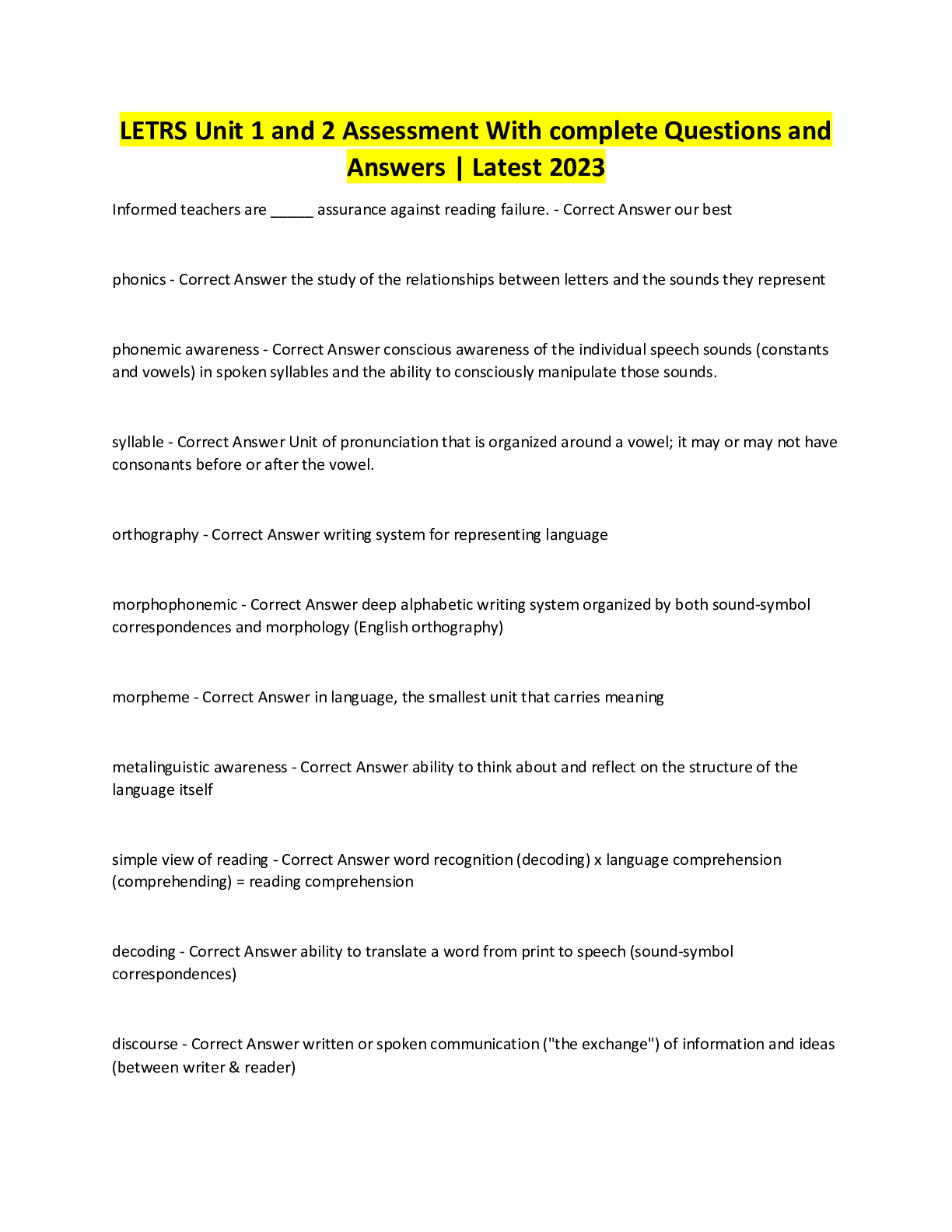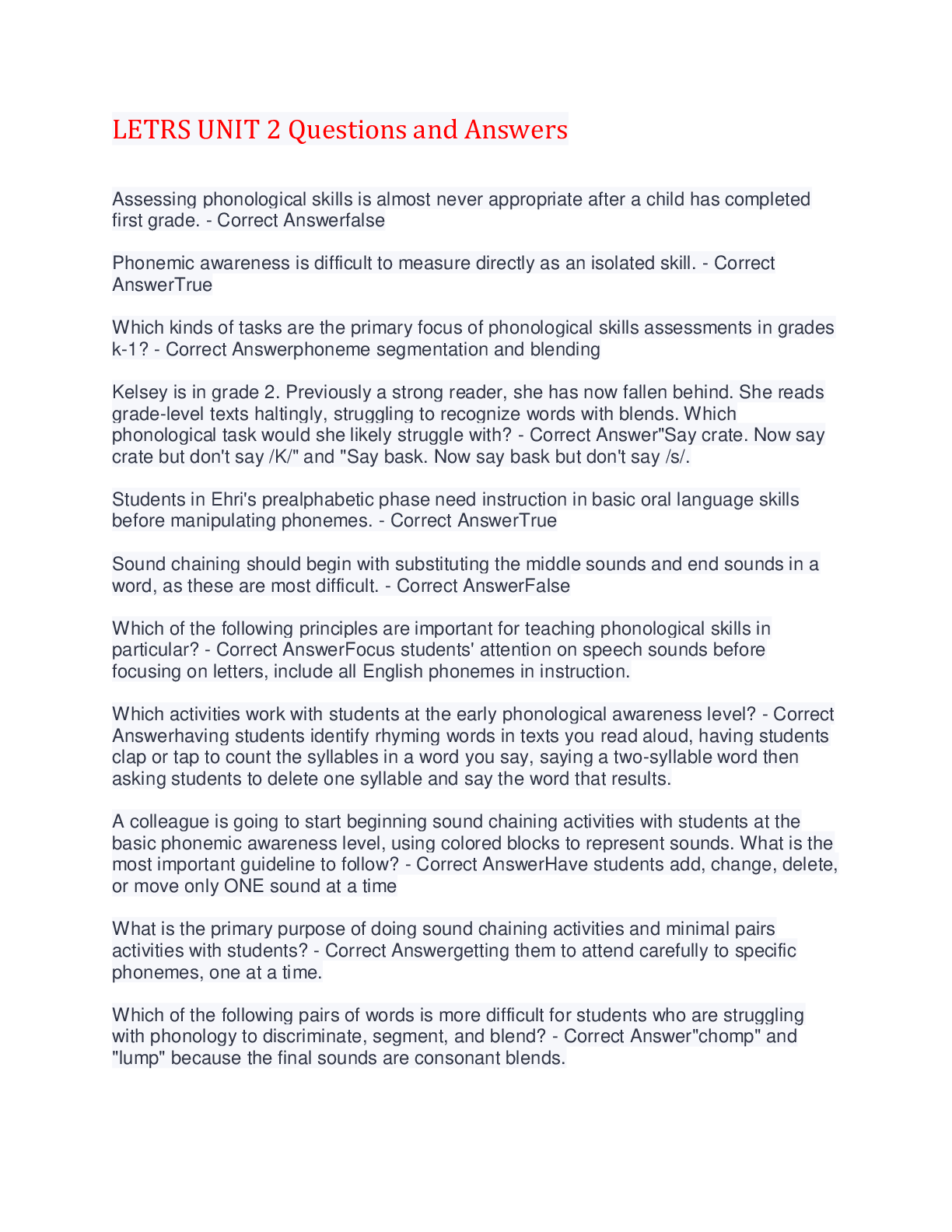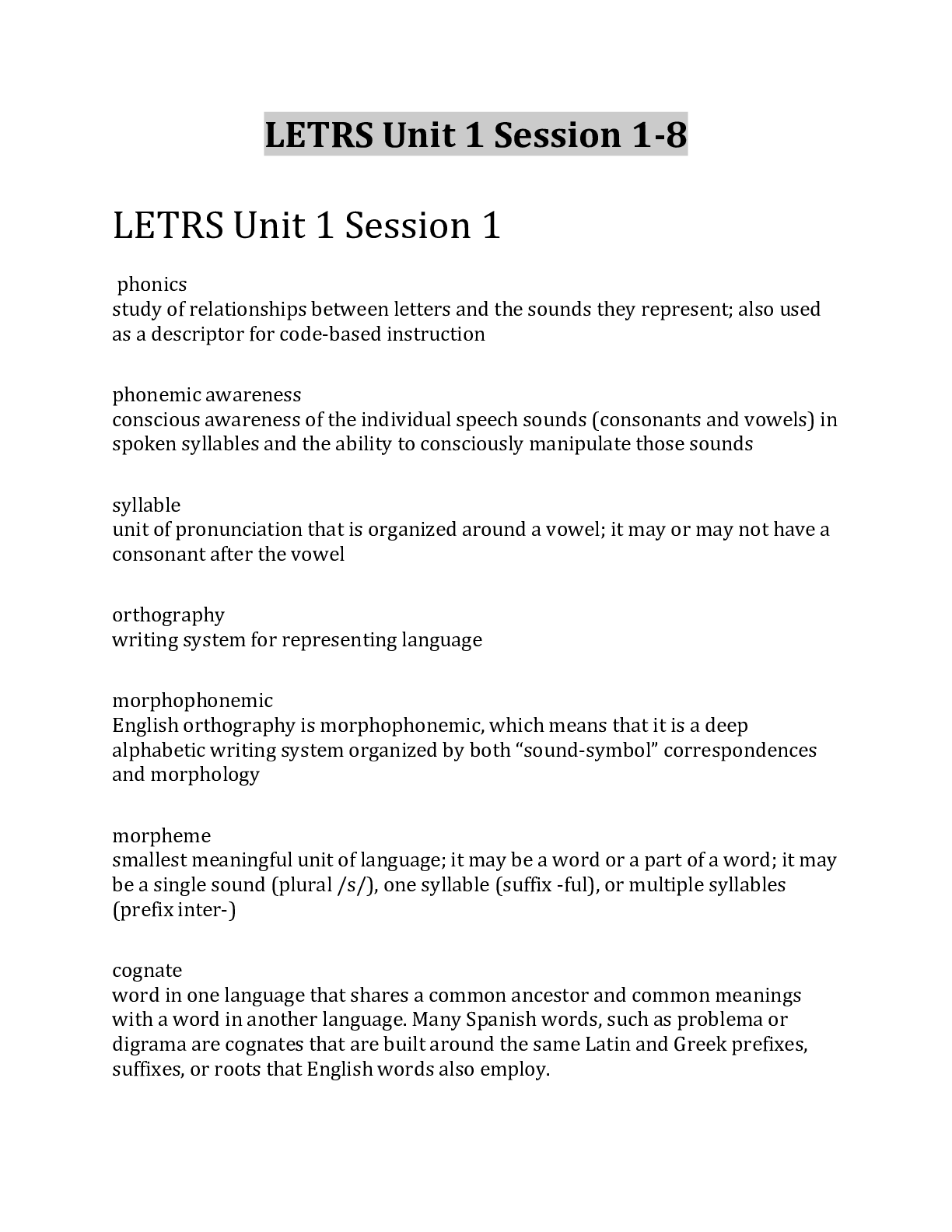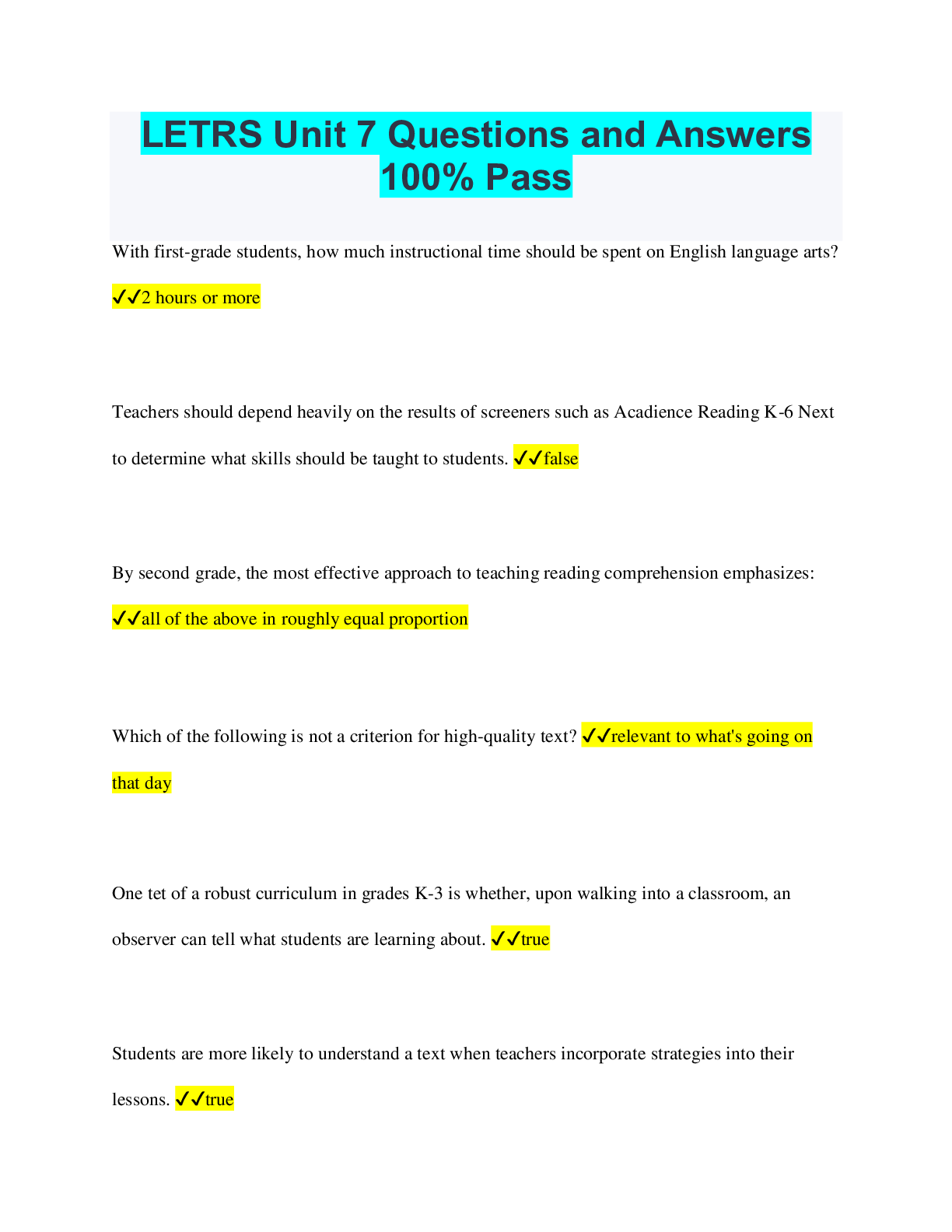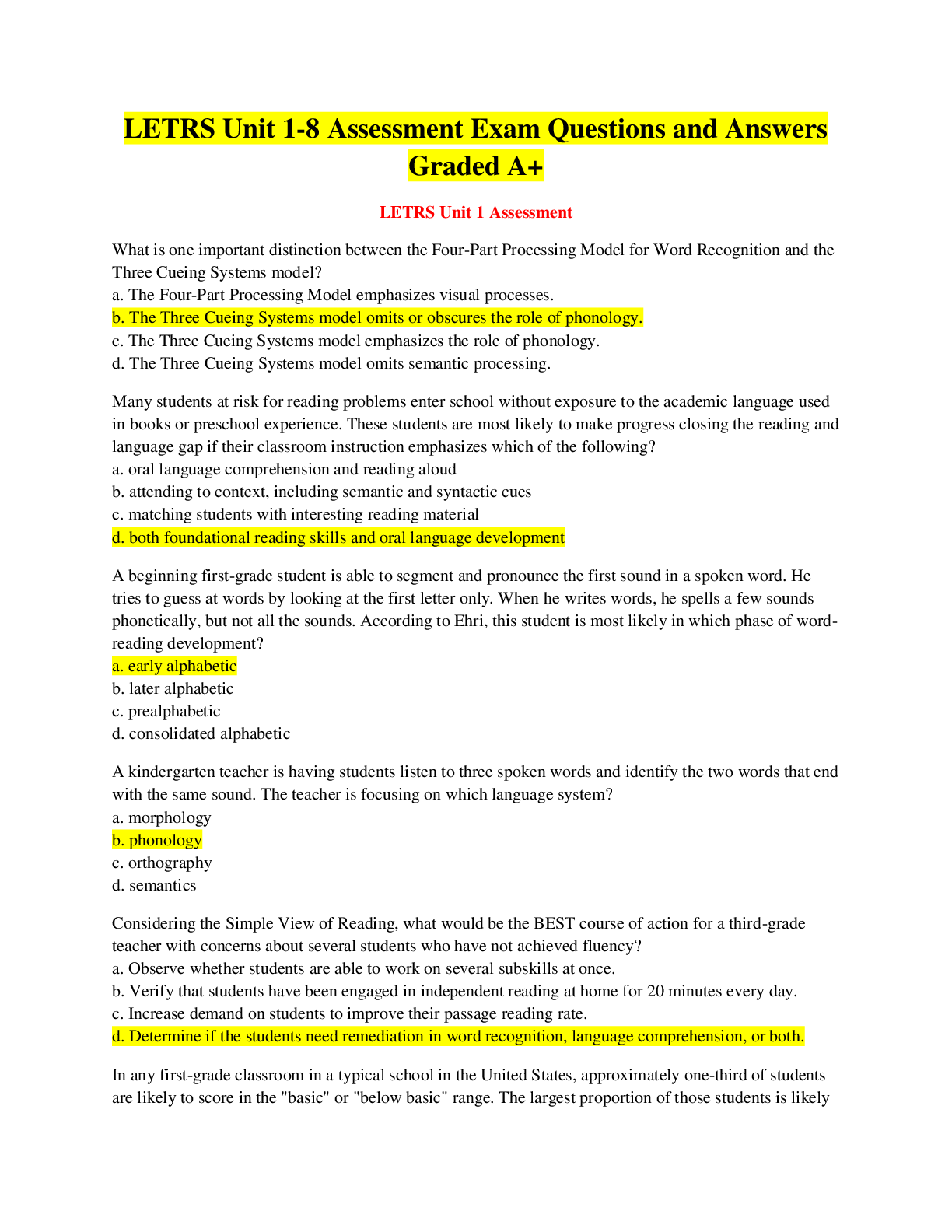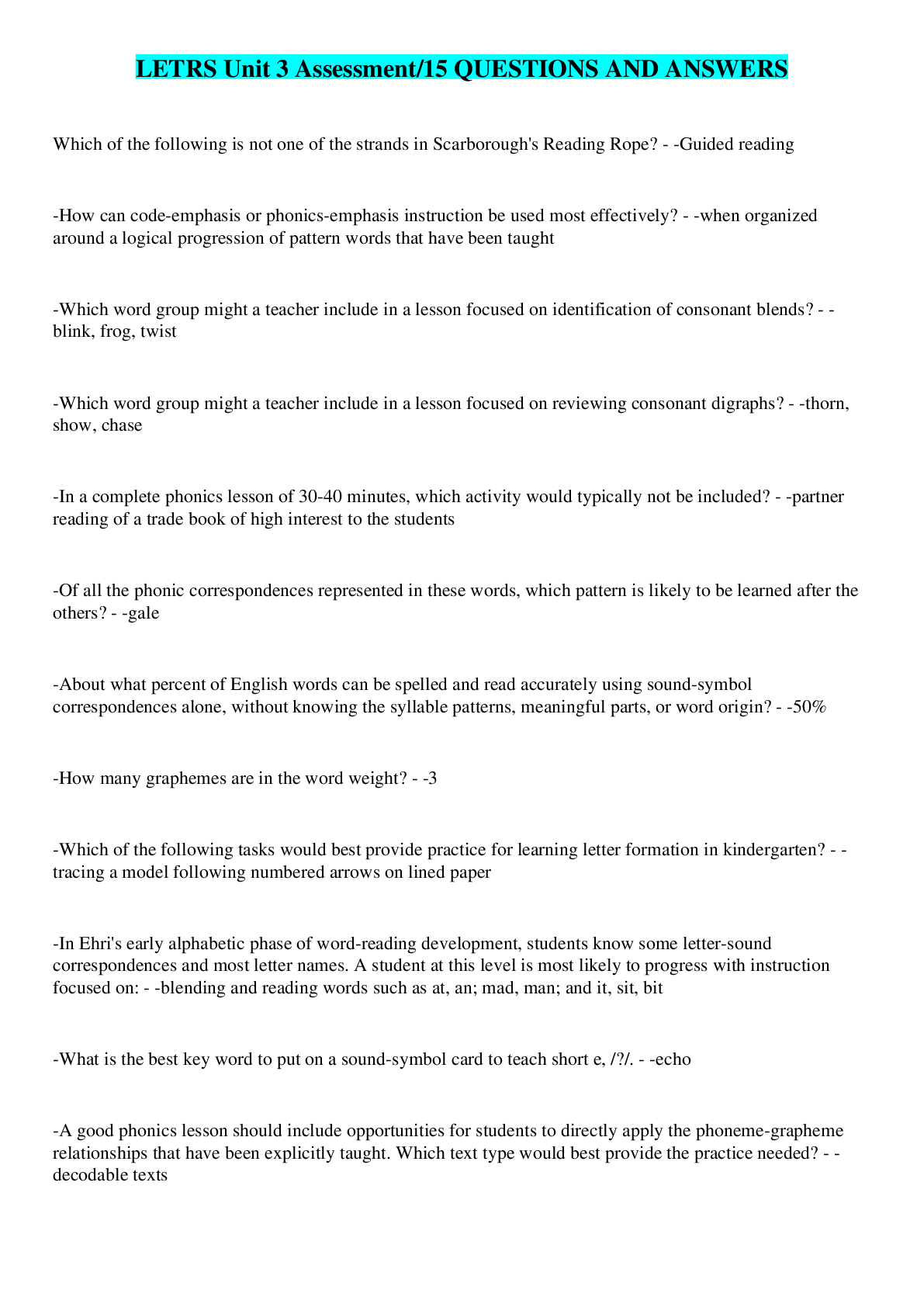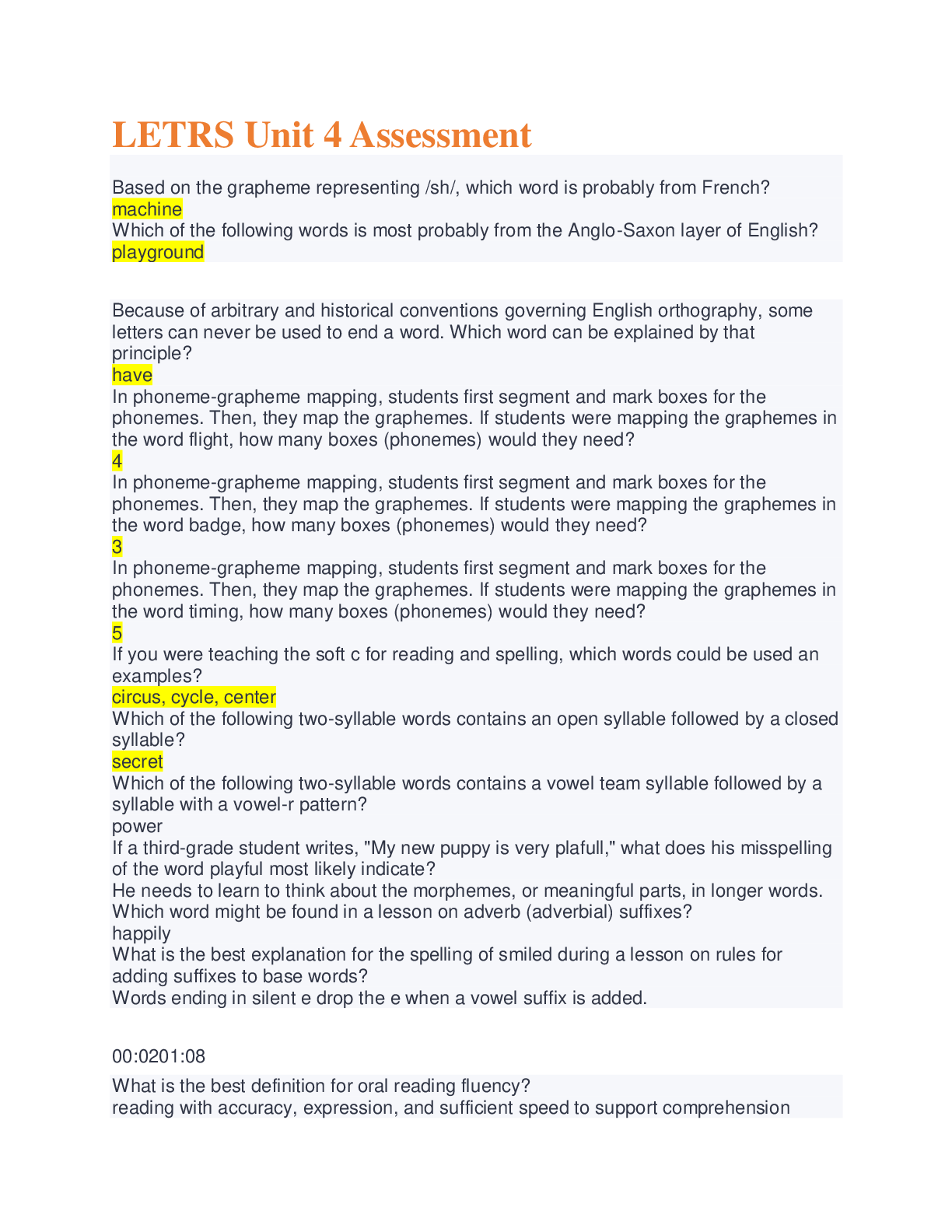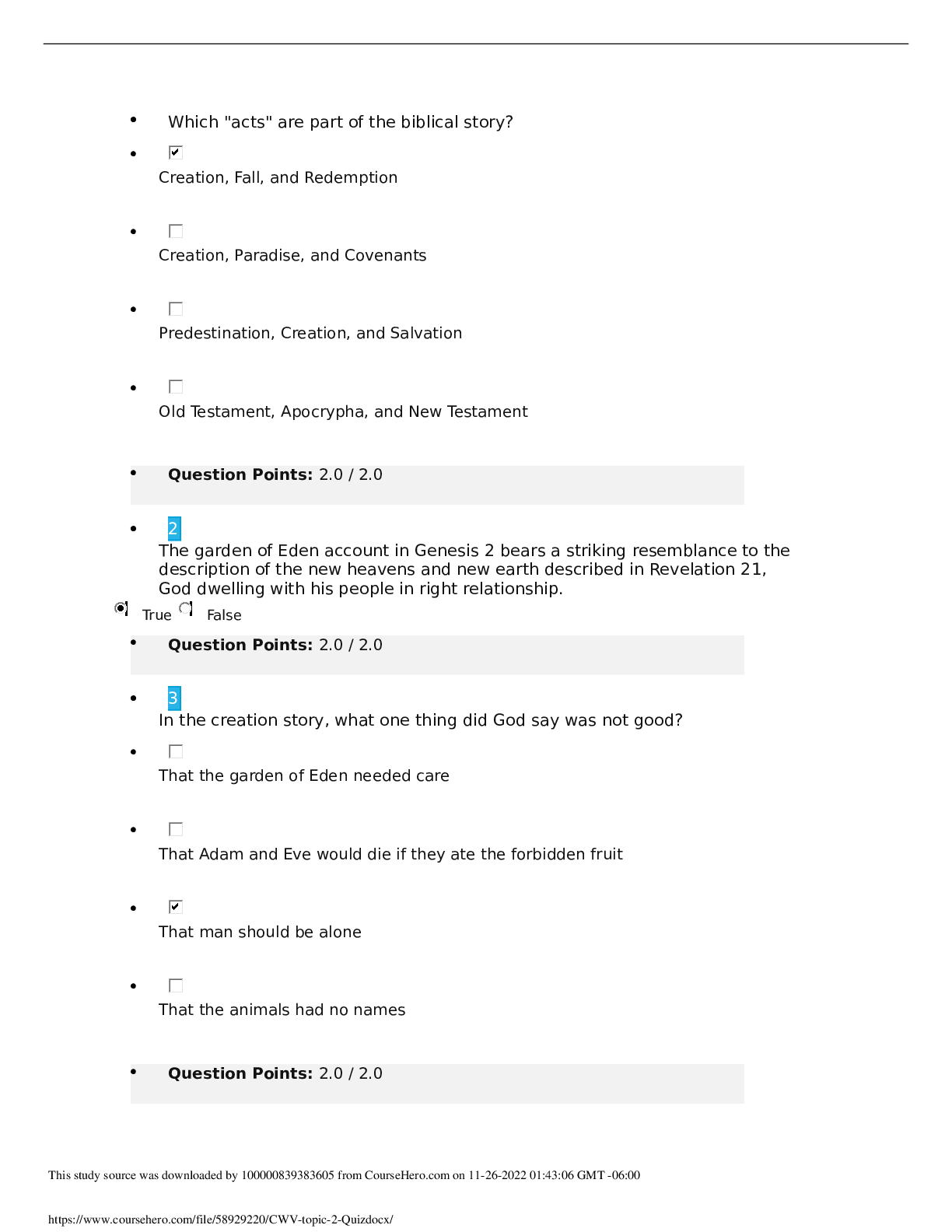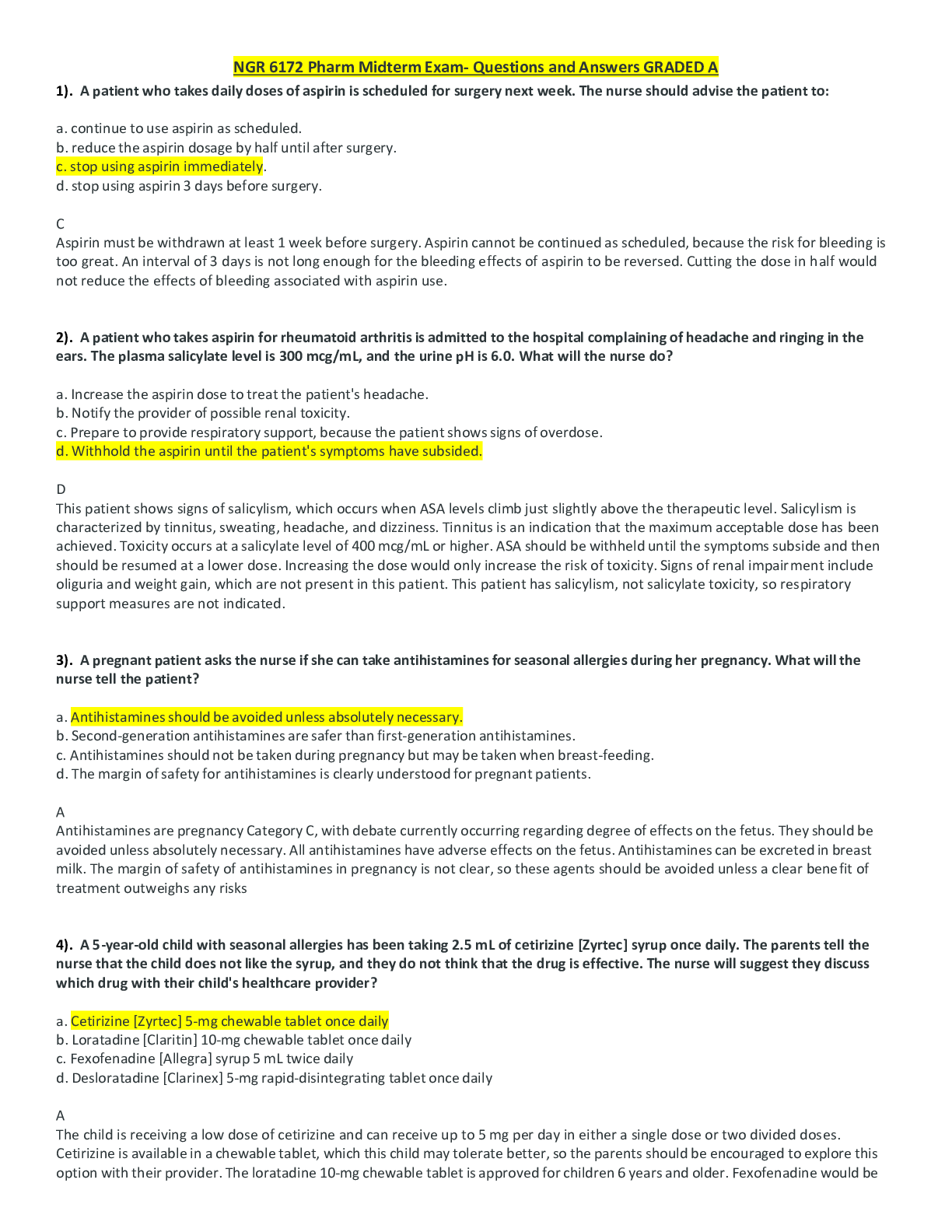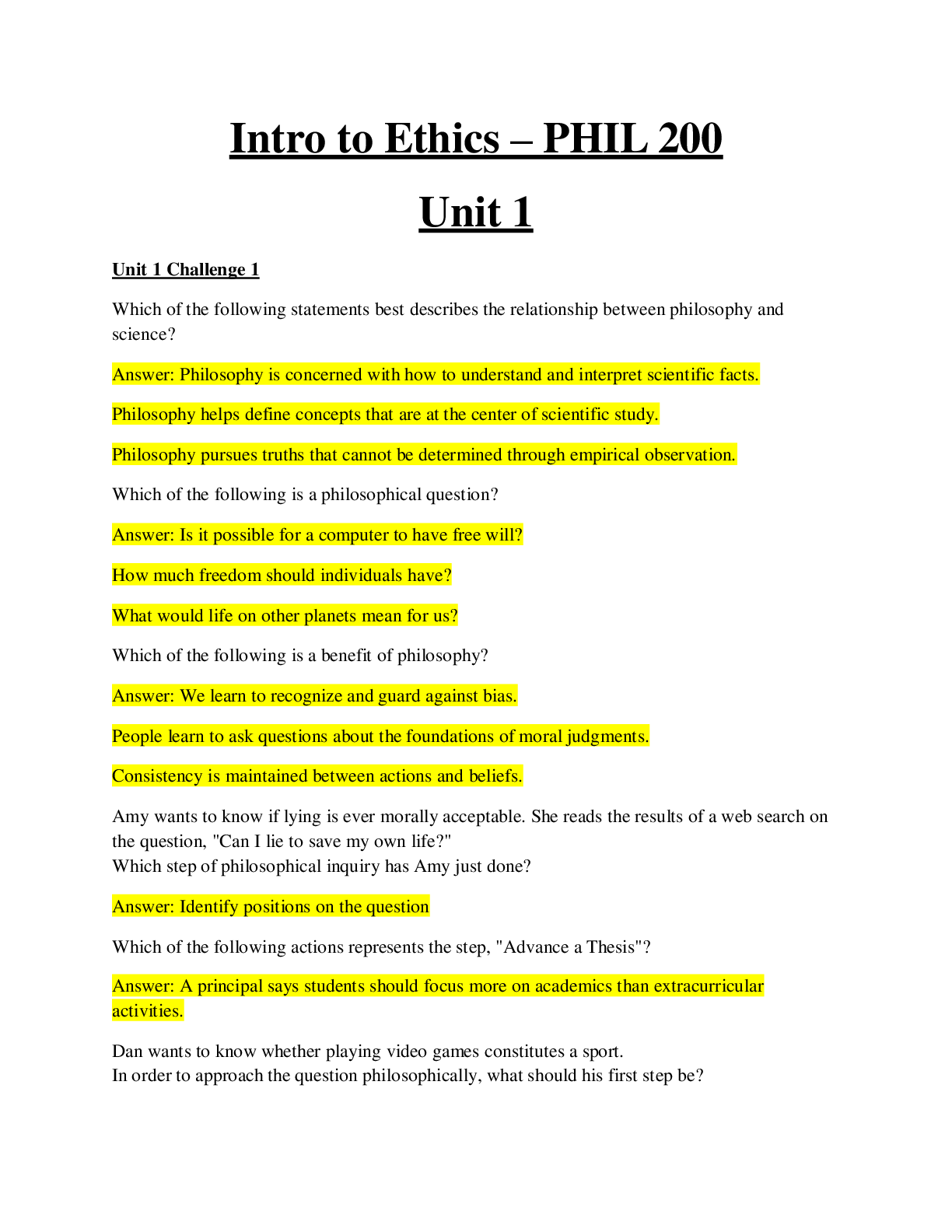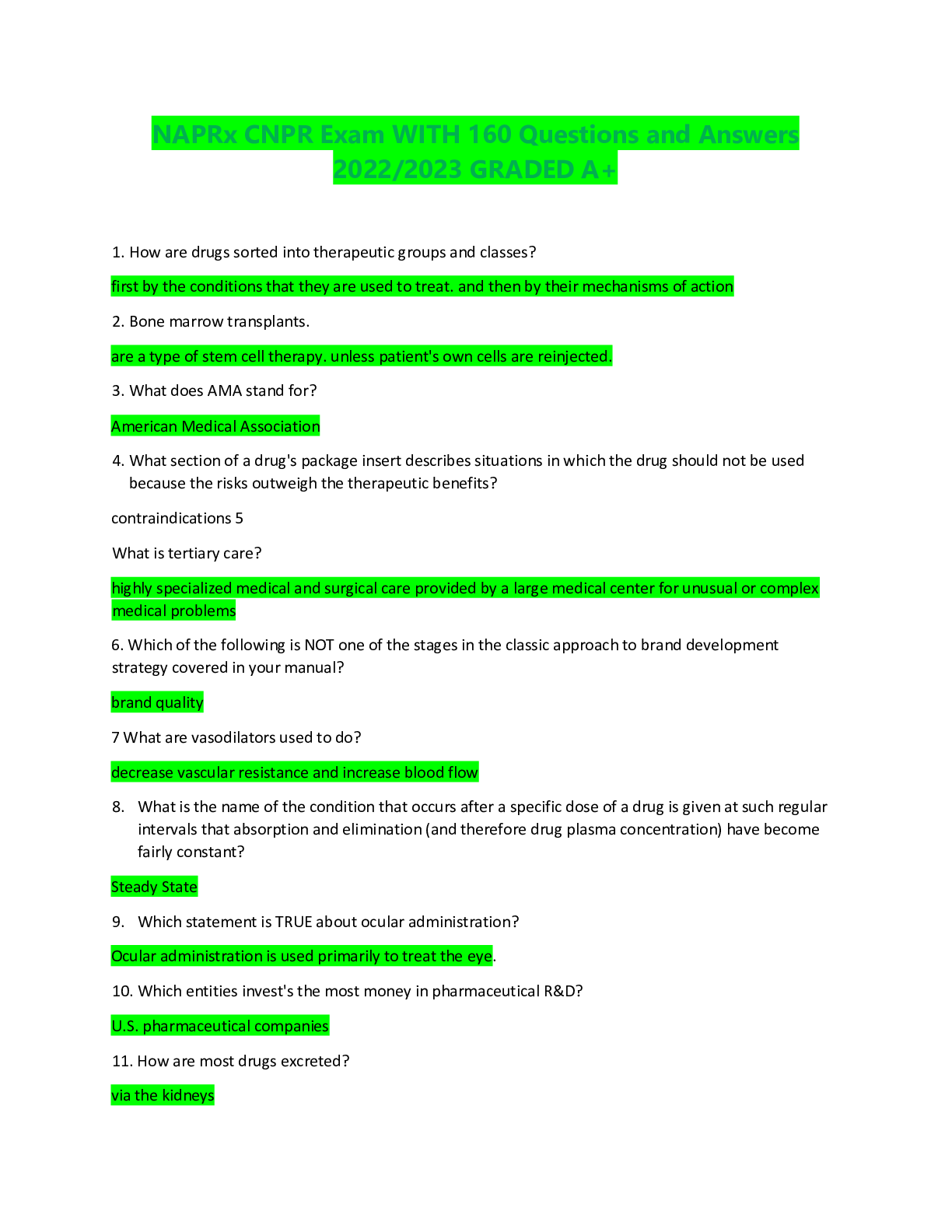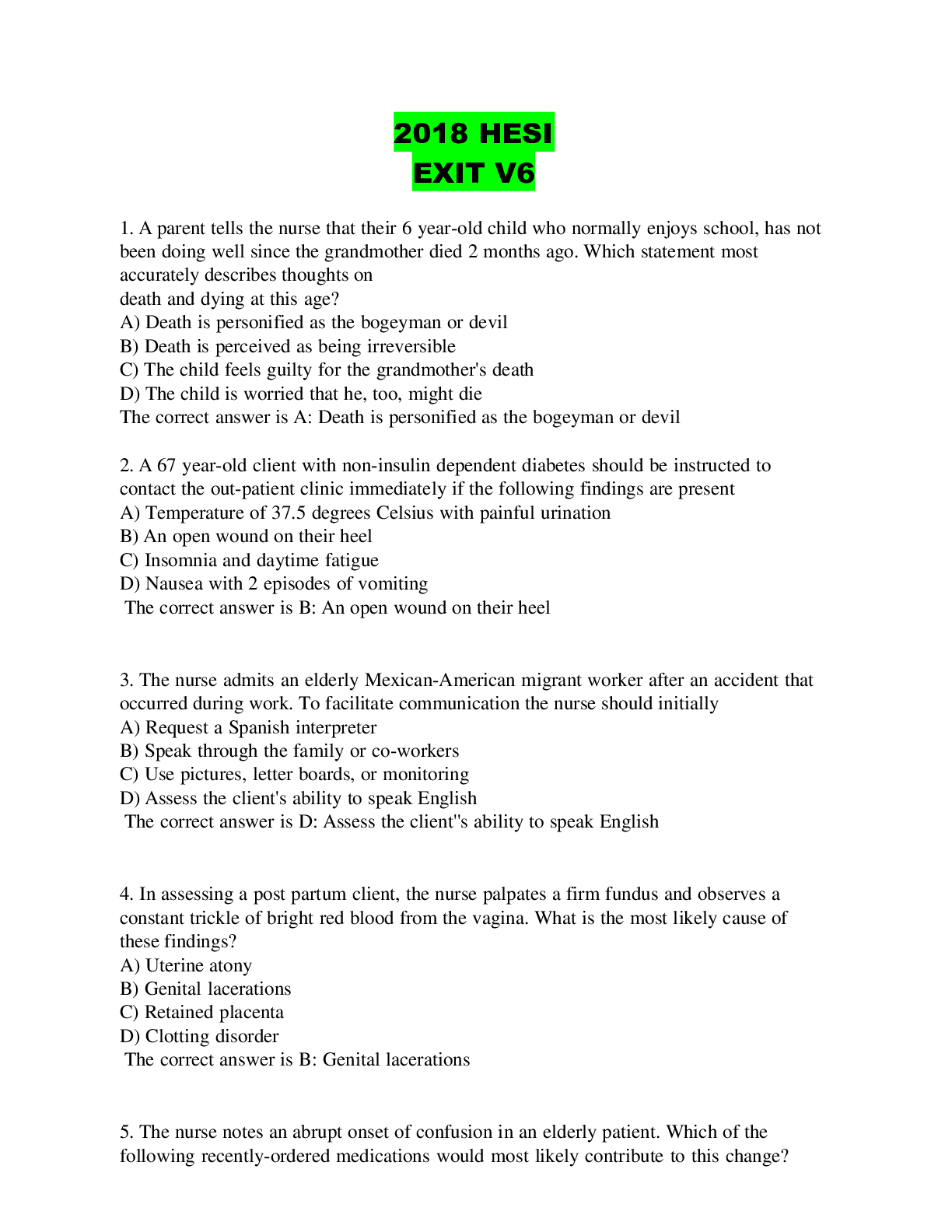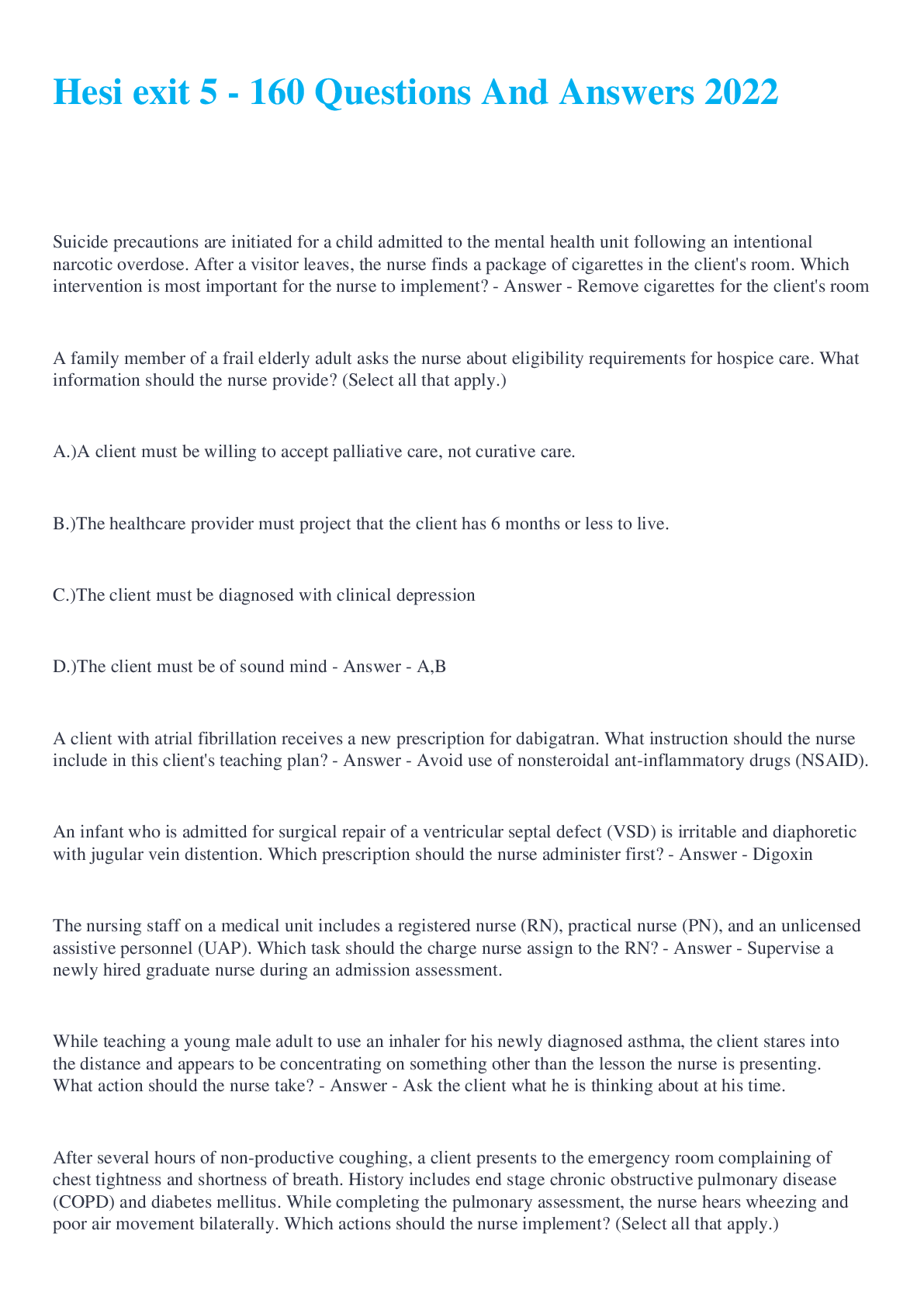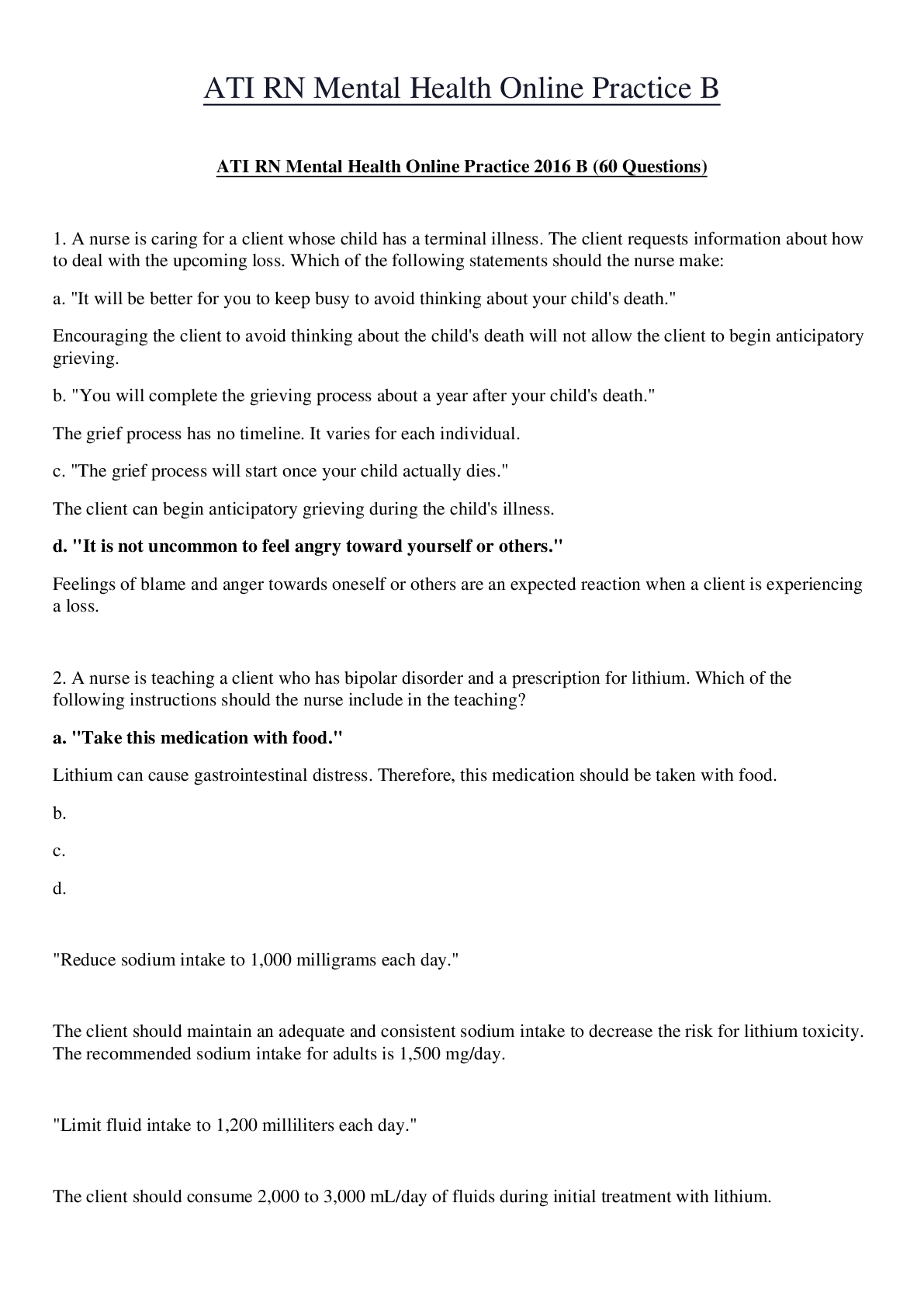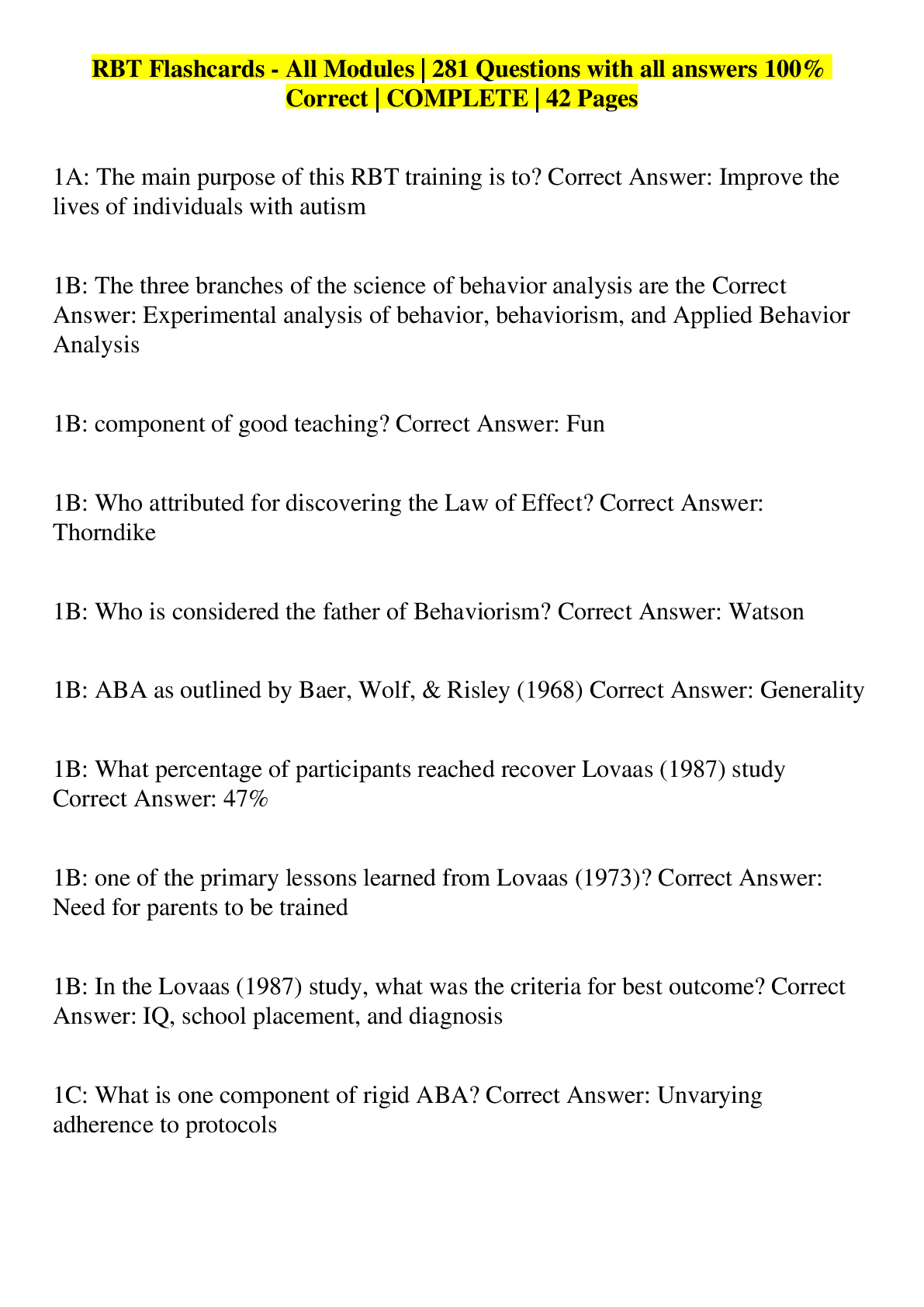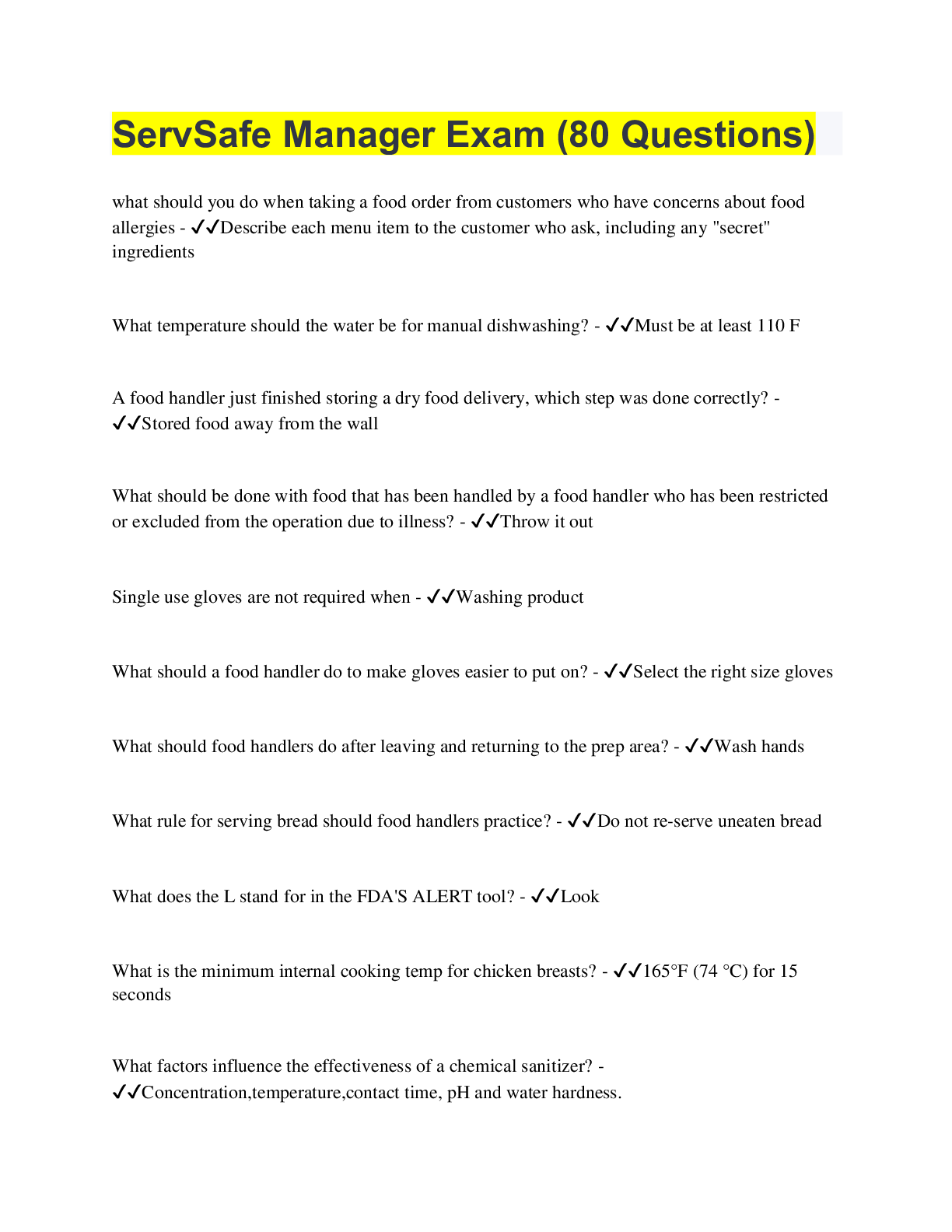NR-601 Week 6 Test Your Knowledge (GRADED A) Questions and Answer solutions
Document Content and Description Below
NR 601:WEEK 6 QUIZ Which of the following symptoms is the most common subjective complaint of a woman presenting with an uncomplicated urinary tract infection? urinary frequency fever gastrointes... tinal upset suprapubic tenderness Dysuria is a classic presenting symptom in women with UTIs. Kennedy p. 289 An 89-year-old patient was recently an inpatient for pneumonia and was bedridden for 1 week. He presents today, to the office, with dysuria and suprapubic tenderness, accompanied by fever and increased confusion. Based on his recent history, which of the following conditions may be developing? Cystitis distended bladder prostate enlargement pulmonary embolus Predisposing factors to the development of cystitis in older adults include indwelling catheters, urethral or condom catheters, incontinence (urinary and fecal), cognitive impairment, neurological conditions that impair bladder emptying, and diabetes, which can lead to neurogenic bladder. Kennedy p. 289 What bacteria colony count is required to diagnose uncomplicated cystitis? 10^5 10^6 10^4 10^2 The presence of greater than 105 colony-forming units/mL of a single bacterium in a culture of freshly voided urine is generally considered to be a significant bacteriuria. Kennedy p. 289 How does the female anatomy make women more susceptible to UTIs? the female urethra is shorter women tend to get UTIs when they are pregnant there is a longer distance between the urethra and anus asymptomatic UTIs do not resolve themselves without treatment The woman’s shorter urethra is an anatomical variance as to why women are more susceptible to UTIs over their lifetime, along with the urethra’s proximity to rectal and vaginal flora, increasing the risk of cross-contamination. The length of the male urethra provides a protective barrier against ascending bacterial infection, especially before age 50 years. Kennedy p. 289 Menopause management is based on which of the following? symptom management hormone levels age family history Treatment of menopause symptoms is focused on symptom management. Treatments will vary based on presenting symptoms. Dunphy p. 719 Quiz Score: 10 out of 10 [Show More]
Last updated: 1 year ago
Preview 1 out of 2 pages
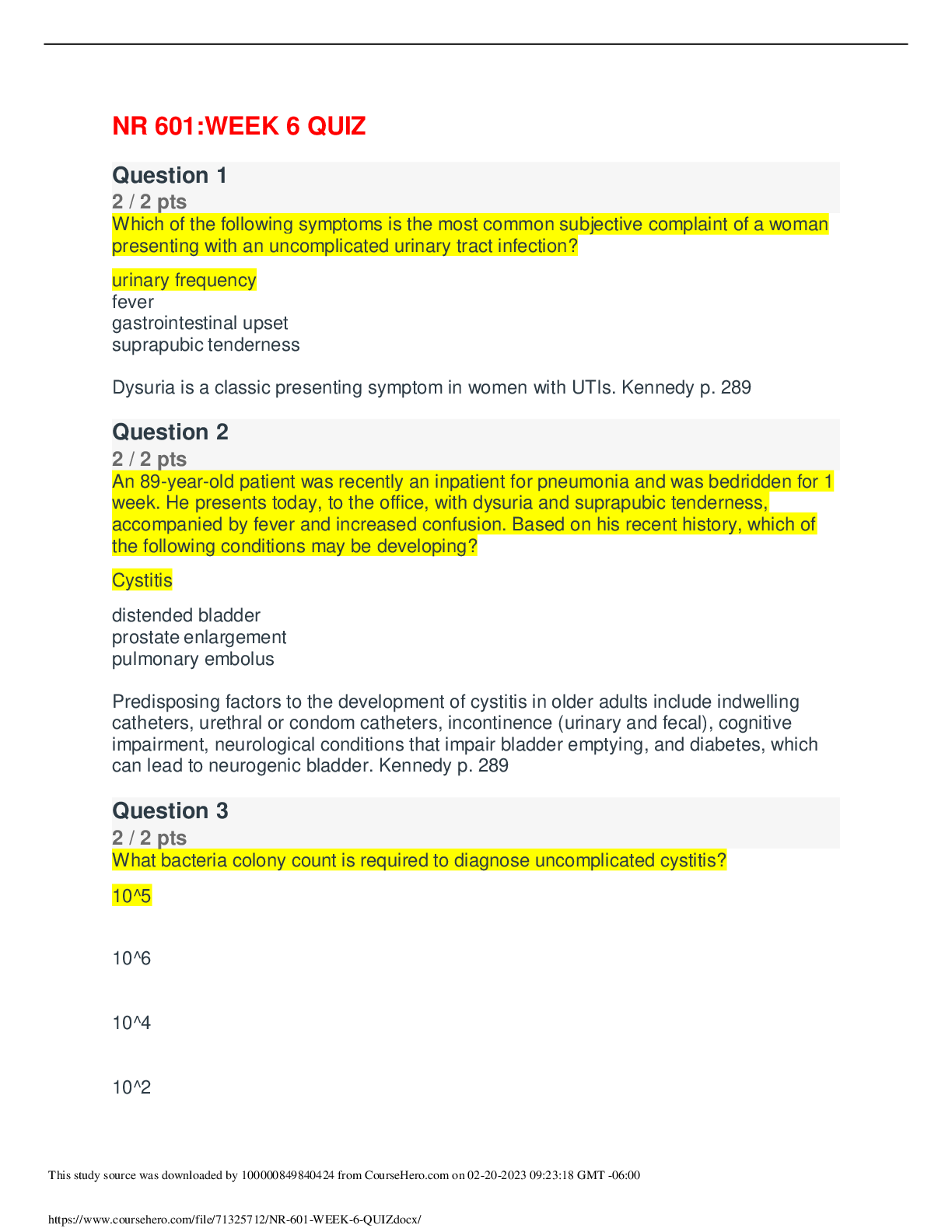
Reviews( 0 )
Document information
Connected school, study & course
About the document
Uploaded On
Dec 06, 2022
Number of pages
2
Written in
Additional information
This document has been written for:
Uploaded
Dec 06, 2022
Downloads
0
Views
61
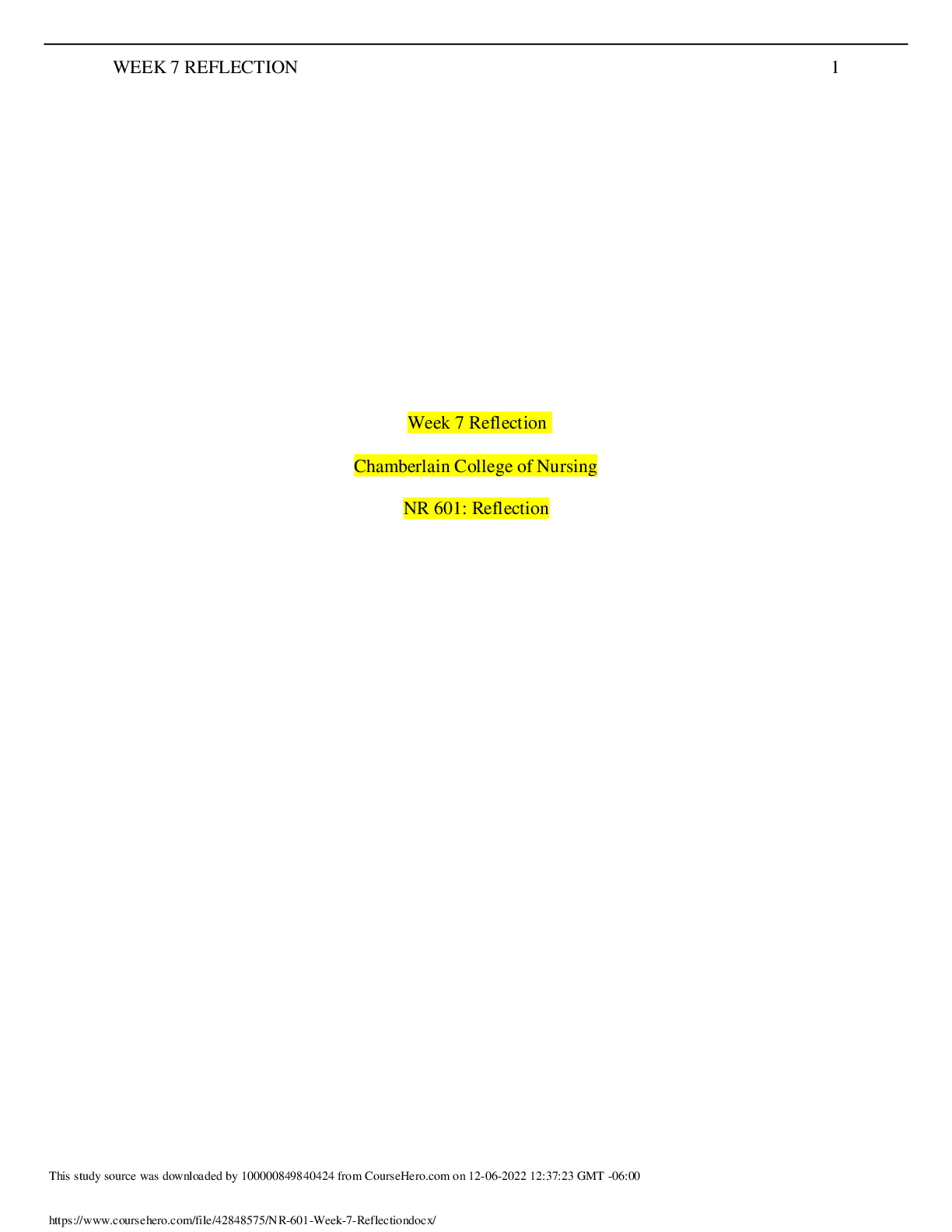


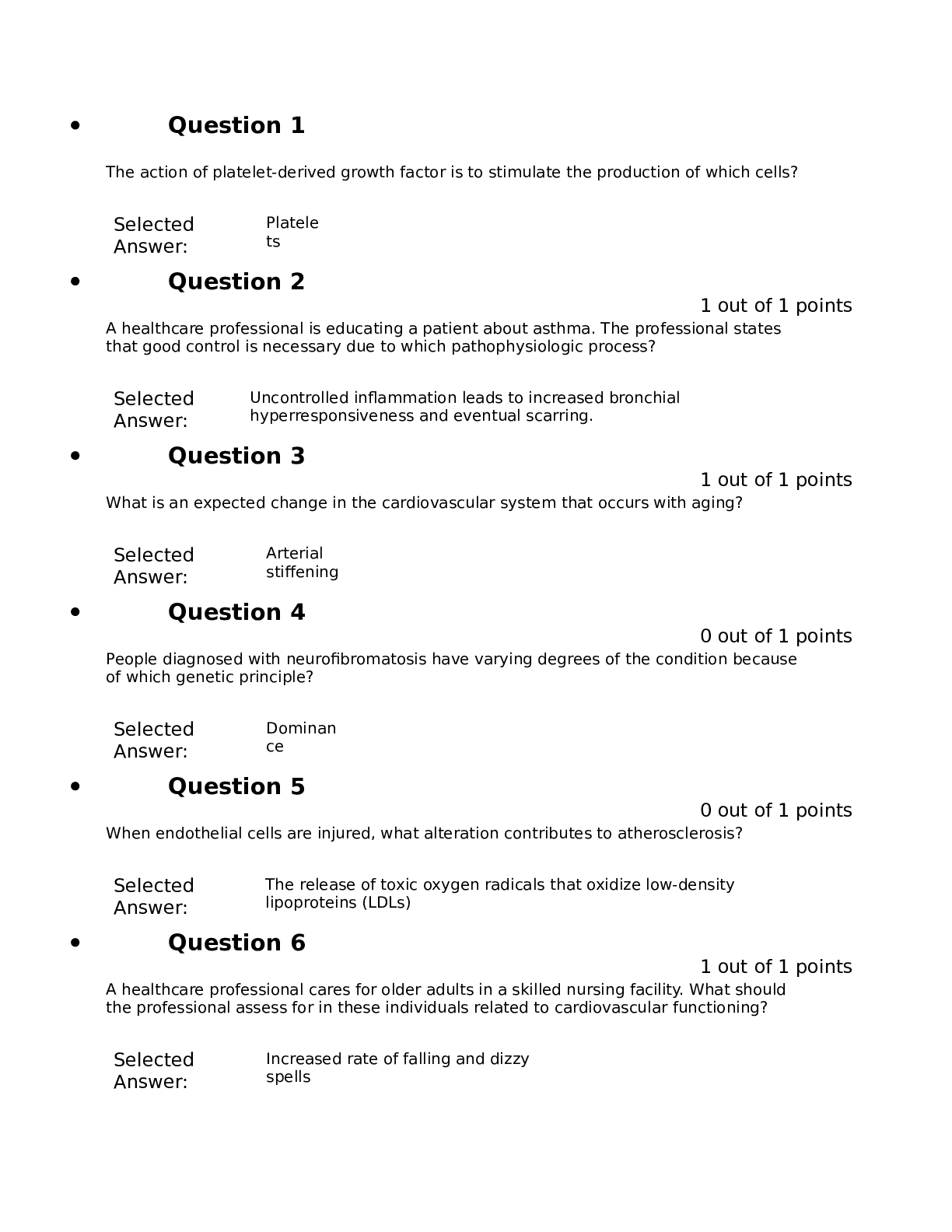
.png)
